

Travel Insurance for Cuba: An Expert’s Guide for Travelers [2024]
Did you know that ALL visitors to Cuba must have proof of comprehensive insurance coverage to enter the country? It’s an entry requirement for Cuba that takes many travelers by surprise – ut with a basic understanding of Cuba travel insurance requirements, it can be easy to avoid any unexpected issues.
As locals and travel guides, we’ve navigated Cuba travel insurance requirements for years and consider ourselves experts on the latest in travel insurance plans for Cuba. Read on for the easiest (and least expensive!) way to find the travel insurance Cuba requires, plus the select few options for medical insurance to Cuba for US citizens.
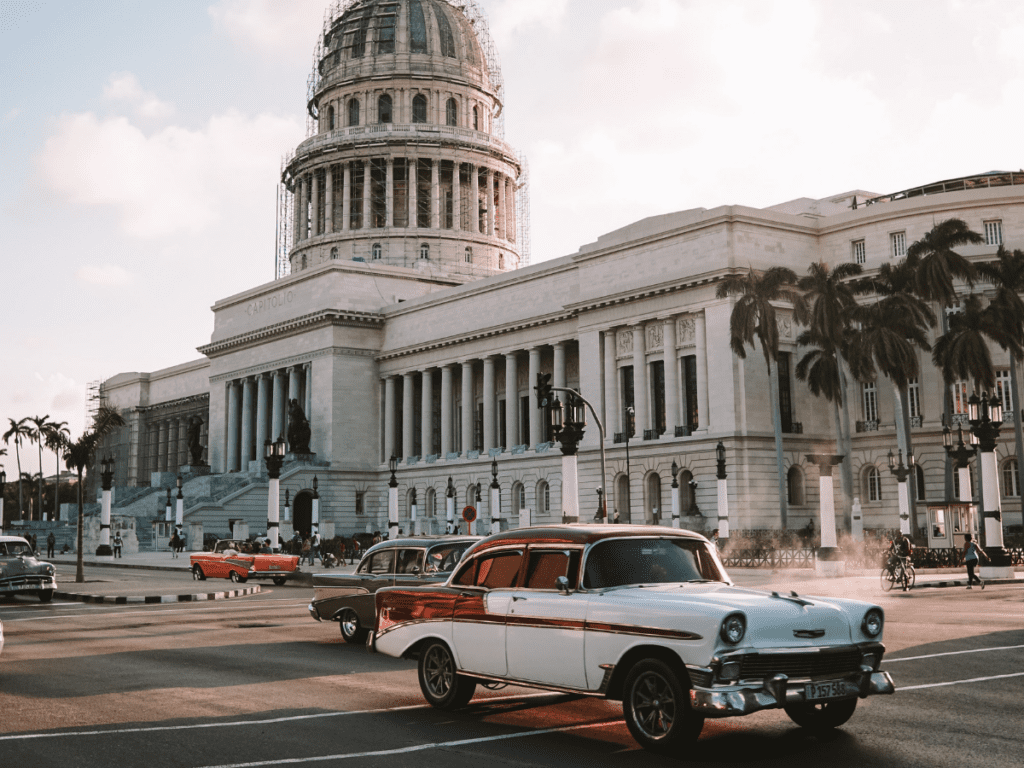
This post contains affiliate links that may reward me monetarily or otherwise when you use them to make qualifying purchases – at no cost to you. As an Amazon Associate, I earn from qualifying purchases. For more information, please read our disclosure policy .
Travel Insurance for Cuba
Since 2010, proof of insurance coverage has been an entry require ment for all travelers to Cuba . If you a planning a trip to Cuba, you must make sure that you have insurance coverage for the duration of your trip.
Cuban entry requirements do not specify that you need travel insurance for Cuba—they simply require that travelers have comprehensive medical insurance coverage for Cuba. However, in almost every case, the only way to obtain comprehensive medical coverage in Cuba is through a travel insurance plan that covers medical expenses from applicable companies like Visitors Coverage or Insubuy .
Even if you have private health insurance at home, you can not assume that your home health insurance covers you in Cuba – it is very rare that domestic healthcare plans cover international travel, and even less common that they function as Cuban health insurance.
Cuba Travel 101
- Currency in Cuba: A Local’s Guide for Travelers
- How to Get Wifi in Cuba [Updated!]
- Is Cuba Safe? Updated Cuba Safety Guide
- Ultimate Cuba Travel Guide – A Local’s Advice for Travelers
Cuba Travel Insurance Coverage
Cuba does not maintain a list of accepted companies to meet their insurance, so make sure that your insurance plan shows that it covers you while in Cuba. There are very few travel insurance companies that cover travel to Cuba, unfortunately. These are the companies that we recommend:
- Visitors Coverage offers coverage for Cuba travel that is available to citizens of all countries. However, it is not currently available to residents of New York and Maryland in the United States.
- Insubuy offers coverage for Cuba travel available to citizens of all countries and states of the United States.
There are no specific requirements for types of documents that demonstrate proof of health coverage – a copy of your policy should be more than enough . There is also no specific coverage amount required for admission – as long as your policy covers medical and health expenses in Cuba, it is acceptable.
Proof of Insurance Coverage in Cuba
Travelers must have proof of insurance for Cuba when arriving in the country and should be prepared to show proof of their travel insurance policy when passing through immigration. (a hard copy or a digital copy of your plan is fine – but make sure it’s downloaded before you land !).
Immigration is not always consistent in asking visitors to present this information – I am occasionally asked for proof of health insurance for Cuba when entering Cuba, but other times it isn’t mentioned!
Regardless, you shouldn’t take a chance and arrive in Cuba without a Cuban health insurance plan that covers you, and proof of coverage. If you arrive without it, you will be forced to purchase a local policy at whatever the cost or you could be denied admission to Cuba.
What to Pack for Cuba
Check out our Ultimate Cuba Packing List to help you pack for your trip – we’re sharing exactly what to bring to Cuba and what we never travel without.
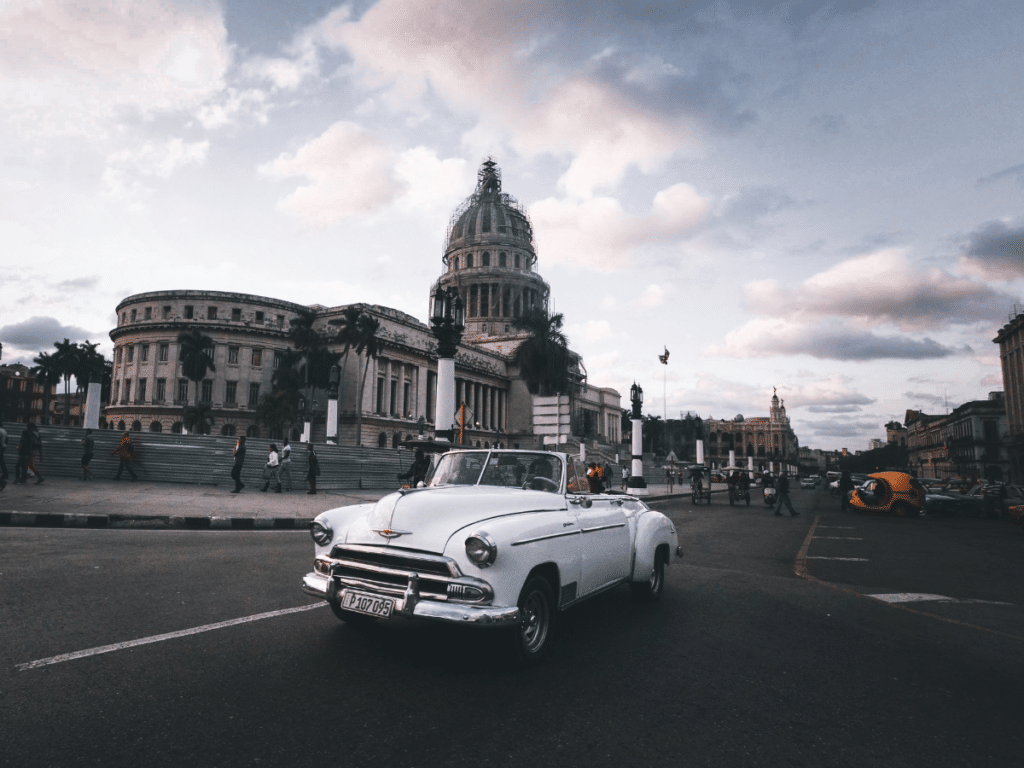
Best Cuba Travel Insurance Companies
Unfortunately, very few travel insurance companies cover travel to Cuba due to the decades-long embargo imposed on Cuba by the United States. Because of this, your go-to travel insurance provider or blanket travel insurance plans are not likely to cover your trip.
While these limitations impact all travelers, they impact travelers from the United States more than anyone else – even fewer travel insurance companies cover U.S. travelers in Cuba. Regardless of your nationality, these are some of the different companies that we recommend for travel insurance for Cuba:
Visitors Coverage
Visitors Coverage is a fantastic company with nearly 20 years of experience. Not only do they offer a variety of plans for covering your trip to Cuba, but their website is extremely user-friendly! You can get quotes in just a few minutes – it’s a breeze.
For most travelers headed to Cuba, we recommend checking Visitors Coverage travel insurance first. Visitors Coverage offers flexible and affordable travel insurance policies that cover all travelers – even travelers from the United States! – and go above and beyond the requirements for entering the country.
Note to travelers: Visitors Coverage currently does not cover travelers from the United States that are residents of New York or Maryland. Residents of other states from the U.S. are able to purchase coverage for travel to Cuba.
Insubuy is one of the few companies that provides Cuba travel insurance to travelers of all nationalities – the United States included – and doesn’t have any restrictions on travelers from different states.
Like Visitors Coverage, Insubuy offers an easy-to-use platform and helpful customer service, as well as highly competitive rates. It’s long been one of our top recommendations for travelers headed to Cuba.
Guides to Entry Requirements for Cuba
- Entry Requirements to Cuba: An Ultimate Guide
- Travelers Form for Cuba: What It Is and Where To Find It
- Cuba’s Required Tourist Visa: What It Is and How To Get It
- Travel Insurance for Cuba: Requirements and Approved Companies
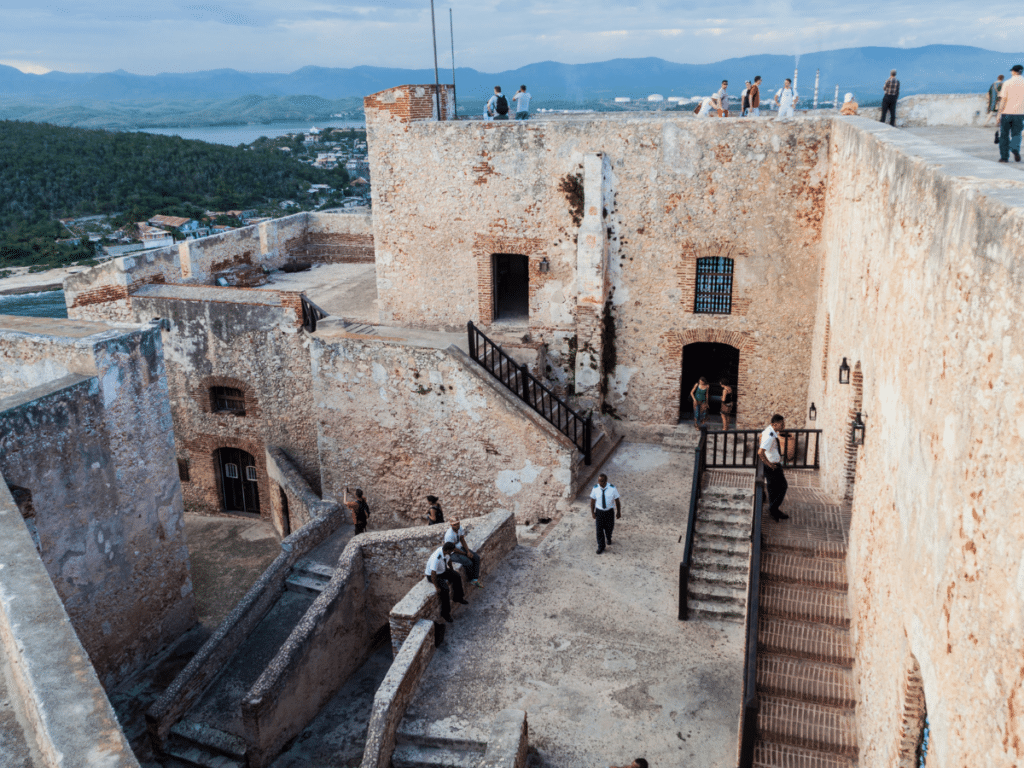
Healthcare in Cuba for Tourists
Healthcare in Cuba is considered quite good, and it is readily available to all. Cuba is increasingly becoming a destination for healthcare “tourism” for those from other countries looking for more affordable yet quality procedures.
Healthcare is provided free of charge to all Cubans – but is not freely provided for foreigners. Use of most local clinics and hospitals is restricted to Cubans, meaning that tourists traveling to Cuba who happen to need medical attention during their stay are limited in where they can seek treatment.
In Havana, most foreigners seeking medical care are attended at these locations:
- Clínica Central Cira Garcia in the Miramar neighborhood
- Hospital Hermanos Ameijeiras in the Havana neighborhood of Centro Habana, right along the Malecón sea wall.
Many larger hotels and resorts provide services of doctors who can make visits to their guests or will be able to point to medical care should you need it. Travel insurance Cuba plans, including those from Visitors Coverage and Insubuy , will generally cover this even if you don’t have to leave your hotel!
Plus, even if you’re staying in a rental apartment, the host should always be able to direct you to assistance.
More Cuba Travel Guides
- 25+ Best Things To Do in Cuba
- 10 Best Cities in Cuba for Travelers
- 20 Best Places to Visit in Cuba
While Cuba doesn’t specifically require a travel insurance policy (rather than other medical insurance policies), choosing a travel insurance policy that covers health and medical expenses in case of an emergency while traveling is the best way to meet health insurance requirements.
These travel insurance for Cuba policies provide you with the coverage you need and more. Travel insurance policies also give you additional protection that can make or break your trip. Most policies include reimbursement for canceled or delayed trips, covering things like stolen travel gear in case of a robbery, and much more.

Carley Rojas Avila
Carley Rojas Avila is a bilingual travel writer, editor, content marketer, and the founder of the digital travel publications Home to Havana and Explorers Away. She is a serial expat and traveler, having visited 40+ countries and counting. Carley has written for publications like Travel + Leisure, MSN, Associated Press, Weather Channel, Wealth of Geeks, and more. Find her front row at a Bad Bunny concert, befriending street cats, and taste-testing every pizza in Havana.
- Search Search Search …
- Search Search …

The Cuba Travel Insurance & Medical Cover Guide
Since 2010 the Cuban government has required that tourists and visitors obtain medical travel insurance before being allowed entry to the country. If you are traveling to Cuba you need to take out travel insurance for that reason alone, let alone all the other reasons for taking out travel insurance. As of 2021, it’s also been a requirement that your Cuban travel insurance provides coverage for Covid-19. In this article, we’ll cover the reasons for Cuba Travel Insurance and some of the risks of traveling to Cuba to consider before you buy your health insurance for Cuba.
THIS POST MAY CONTAIN COMPENSATED AND AFFILIATE LINKS. MORE INFORMATION IN OUR DISCLAIMER
TOP PRODUCT PICK
Travel Insurance for Cuba
Visitor’s Coverage provides medical and travel insurance for Cuba – for Americans and for international visitors.
Why Do You Need Travel Insurance for Cuba?
There are a variety of reasons why you should take out travel insurance before visiting Cuba, and for ensuring that you have proof of your Cuban travel insurance when you arrive in the country. There are limited options of companies that provide insurance cover for Cuba and any annual policies that you have *may* not cover Cuba automatically. Here are two options for travel insurance for Cuba
1. Visitors Coverage – get a price for Cuba travel insurance here
2. Civitatis insurance – get a price for travel insurance for Cuba here.
The Cuban Government Require Proof of Medical Insurance
Since May 2010 the Cuban government has required that all foreign visitors purchase travel health insurance. This rule applies to Cuban living abroad as well as foreign tourists. The reason for this is to ensure that those holidaying on the island nation have adequate medical coverage before arriving in Cuba. If you are ill and need medical assistance while you are visiting Cuba, then Cuban authorities will delay your return home until you have paid your outstanding medical bills.
You may be asked for proof of your Cuban travel and health insurance at immigration when arriving in Cuba. If you do not have this you will have to buy health insurance from the local provider, or you will be denied entry to Cuba. There is a local provider in the immigration area at Havana airport.
You can read more here about what to expect on arrival in Cuba. The other item you’ll need to enter Cuba is a Cuban Tourist Card – read here about how to get a Tourist Card for Cuba.
Why Wait? Get a quote for medical insurance in Cuba NOW from Visitors Coverage
Or the Civitatis travel insurance option is here.
The Cuban Government Requires that Travel Insurance provides Covid-19 coverage
It is a requirement of entry to Cuba that your medical insurance for your trip to Cuba also covers Covid-19 coverage. If you test positive for Coronavirus while in Cuba you will be taken to a hospital or medical center and must pay for your treatment and any medications on your discharge. This is likely to be around US$200 a day. Get a quote for medical insurance that includes Covid-19 coverage for Cuba here. Or the Civitatis travel insurance option is here.
Not all companies will cover US Citizens to travel to Cuba, check with your provider.
Get a quote for Cuba Travel and Medical Insurance here.
Read about restrictions related to Covid-19 and traveling to Cuba here.
Avoid Unforeseen Costs with Cuba Travel Insurance
If your funds are unlimited then you might not take out travel insurance, however, the avoidance of unforeseen costs is why we all buy travel insurance. It means we have the peace of mind that if something goes wrong, and there are additional costs to bear – like an emergency flight home or medical costs, or your luggage gets lost or stolen – that it’s covered and you don’t have to pay the cost yourself.
Serious Crime is low, but Robbery Can Occur
Serious crime and levels of robbery are very low when they do occur it tends to be opportunistic. It’s necessary, always, to be aware of your surroundings and protect valuables. We always travel with a portable safe and secure our valuables in it in the room when we leave. Here’s our guide to the best portable travel safes for Cuba.

Best Portable Travel Safe for Cuba
This fabulous portable travel safe is big enough for laptops, phones, cameras, and a whole lot more. It packs flat and secures to just about anything!
Our 12-litre Pacsafe can fit two laptops, two kindles and a camera, passports and money in it. We locked our valuables inside it when snorkeled and dived from beaches in Cuba (and padlocked it to a tree!) and also left it in our rooms in our Casa Particulars too.
Cuba is primarily a cash-based society
Cuba is primarily a cash-based society, ATMs do not always work for every traveler’s debit and cash cards, so tourists tend to travel with more cash than in other countries. (Read our guide to Cuban currency here .) The potential for petty theft and pickpocketing is higher because of this. Ensure that your case is safely locked away (use something like the Pacsafe for this).
Safe Drinking Water isn’t always available
The general rule in Cuba is that you should avoid drinking tap water in Cuba. While the local population may drink tap water, your stomach might not be as resilient. Tap water in Cuba is treated with chlorine to kill bacteria, so it also usually tastes a little bit like swimming pool water. Our guide to drinking water in Cuba is here

Best Filter Water Bottle For Cuba
The Lifestraw Go Water Filter Bottle has a 22-ounce capacity, it has a two-stage carbon filter that lasts for 100 liters of water and a membrane microfilter that lasts up to 4,000 liters of water. The bottle itself is reusable, extremely durable, and BPA-free.
This is the best filter water bottle for Cuba
In many parts of Cuba, it is possible to buy bottled water, if it’s available. However, we recommend using a filter water bottle – which will save the environment and your money. It’s much safer than ending up with traveler’s diarrhoea and ruining your holiday!
Cuba has a high risk of dengue fever and the Zika virus
You should take steps to avoid being bitten by mosquitoes as Cuba is classified as having a risk of dengue fever and the Zika virus. While Havana’s health facilities are better than other areas of Cuba if you need to be evacuated for medical reasons then a hospital stay can cost US$200 a day.

Best Bug Spray For Cuba
Effective bug spray deters mosquitoes, gnats, and ticks. This pump spray is good for protecting you against bugs and contains 40% DEET.
A good Cuba health insurance policy will protect you from this cost. With proof of medical insurance, Cuban authorities may also bill your insurance company directly.
Road Conditions in Cuba Can be Dire
Road conditions in parts of Cuba can be pretty dire . While there are occasional weather situations that affect this, like hurricanes, for instance, the primary reason for poor road conditions is the lack of maintenance.
In 2019 there were 29 traffic accidents per day in the first 3 months of 2019.
The main roads in Havana are generally well maintained, but smaller streets tend not to be. There’s a lack of road lighting at night and lights on vehicles aren’t always what you’ve come to expect at home. Add to that, Cuban cars tend to be very old and often in poor condition without 21 st -century safety equipment.
You’ll also find many pedestrians, farm equipment, bicycles, and horse-drawn vehicles on more rural roads – as well as areas that are unfenced and where livestock roams free.
Now you might not be renting a car (it’s quite unusual in Cuba to rent cars), but it’s likely you’ll be using transport to get around – so a car and driver or a Viazul Bus and so you will be using the roads! Read more about Cuban transport options here.
Adventure Activities Are Higher Risk
Do you plan on hiking, diving, horse-riding, or biking when you visit Cuba? These activities come with higher risks of injuries than sitting on the beach.
Flight Delays and Cancellations are possible
Hurricane season in Cuba runs from June until November, which can mean flash floods and landslides as well as the hurricane itself. If you’re caught in a Cuban hurricane, then you can expect the loss of power, communications, and water. Flights are likely to be delayed or canceled.
The Risks of Traveling to Cuba
The risks of traveling to Cuba are no different from other countries and islands in the Caribbean area. Depending on the time of year that you travel hurricanes could be an issue, but the risks of Cuban travel include, but are not limited to
- Health – dengue fever and the Zika virus are present
- Lack of safe drinking water
- Poor road conditions
- Flight cancellations and delays
- Adventure activities carry risks – like diving
- Cash society means more likelihood of opportunistic pickpocketing
Why do you need travel insurance for Cuba?
Some people never buy travel insurance and it is possible to anywhere without travel insurance, mostly, if you so choose. Apart from Cuba, where the government mandates that you must have health insurance before entering the country. You may be lucky, and you may not be asked to provide evidence of your travel insurance, but if you are asked and you don’t have it, then you’ll either have to buy it on the spot at the rates quoted, or you’ll be denied entry.
Travel insurance is there for you to pay for the unknown. The cost of hospital and doctor’s bills if you get sick, replacement items if your gear gets stolen, the cost of flying you home if you need to be repatriated, or if events with family members mean that you need to return home.
Get a quote for Cuba Travel Insurance here from Visitors Coverage. Or the Civitatis travel insurance option is here.
Do you need special travel insurance for Cuba?
Yes. Medical insurance for Cuba is required to enter the country. Cuba is usually included in the group of countries that include the USA and the Caribbean, which attract higher insurance premiums, usually due to either the higher cost of medical assistance or the difficulties of providing more advanced medical support in smaller communities.
It’s extremely important to check the small print of your policy to ensure that your policy covers you for, for instance, diving if you plan to dive.
What do you need to take into account when buying Travel Insurance for Cuba?
There are several things you need to take into consideration when buying travel insurance for Cuba. We’ve detailed these below.
The activities you plan to undertake
Cuba is a unique location to visit. You won’t necessarily find all the adventure sports and activities that you would in other Caribbean locations – but you will find boat trips, diving, snorkeling, bicycling, rock climbing, and horse riding.
If you plan to undertake any of these activities, then you need to ensure that it’s covered by your insurance.
Where you are when you take out the insurance policy
Most travel and health insurance companies only provide insurance if you are leaving on your trip from your home address. Other require that you have been resident in that country for six months or more, and you will likely also have to be registered with a local doctor.
We found this out when we started our travels in 2014 – have returned from 4 years working in the USA, we were not registered with a doctor and had been in the country 6 days not 6 months!
So if you’re already on the road or find yourself living a nomadic lifestyle I really recommend that you take a look at providers who can cover that for your holiday insurance for Cuba. You can get a quote for Cuba Medical Insurance from Visitor Coverage here.
Your age and the age of travelers on the same policy
If you’re 55 or old, then you’ll need to review your travel insurance provider. Many companies change their policies at this age and you need to ensure that you’re covered.
Pre-existing medical conditions
If you live with and are traveling with existing medical conditions then you’ll need to declare them, otherwise, if something happens related o that condition while you’re in Cuba then your insurance won’t cover it. It’s also worth checking to see if you need to declare if you’re had surgery in the last 12 months, regardless of what that surgery was before you buy your travel insurance policy.
FAQS on Cuba Travel Insurance
Got questions about travel and medical insurance for Cuba? Or want to know more about Cuban medical insurance and we haven’t answered your questions? Check out our frequently asked questions about travel insurance for Cuba below, or ask us yours in the comments.
What about Medical Insurance for Americans traveling to Cuba?
Note that if you’re a US citizen then many insurance providers will not provide cover for Cuba. Your AIRLINE ticket may cover you – please check – and retain your boarding pass for proof of coverage. Your existing health coverage may also cover you, but again, please check. There is an Asistur office at Havana airport arrivals that can sell you the insurance for around US$4.50 a day for US citizens. Get a quote for Cuba Travel Insurance here from Visitors Coverage. Or the Civitatis travel insurance option is here.
Is medical insurance for Cuba mandatory?
Yes. Travel insurance for Cuba must contain a medical insurance element. You may be denied entrance to Cuba if you’re unable to provide proof of your medical insurance.
What travel insurance do I need for Cuba?
It is the medical element of travel insurance that is required for entry to Cuba. Get a quote for Medical Insurance for Cuba here. Or the Civitatis travel insurance option is here.
What happens if I don’t have medical travel insurance when I arrive in Cuba?
If you arrive in Cuba without travel health insurance or with an invalid policy then you can buy a policy at the airport where you enter Cuba. Cuba travel health insurance that you buy at the airport is unlikely to be as comprehensive as the policy that you buy before entering the country. If you have medical bills while you are in Cuba you will NOT be allowed to leave the country until they are settled.
ESSENTIAL TIPS FOR EXPLORING CUBA INDEPENDENTLY
These are the resources and booking sites that we use when traveling to Cuba.
Get a Cuba Travel and Medical Insurance Quote from Visitors Coverage here – Alternatively, Civitatis Insurance is a great option for the required insurance for Cuba. You will need a Cuba Tourist Card to enter Cuba – some airlines include these, if yours doesn’t, buy one from EasyTouristCard – now valid for 90 days. Book your Viazul Bus tickets here Pre-book and prepay shared & private shuttles here Book the best FREE Walking Tours in Cuba Reserve attractions, day trips, and activities in Cuba here Get online in Cuba EASILY with a Cuba eSIM – read about Cuba ESIMS here , or buy a Cuba eSIM here .
Download and install a VPN BEFORE you travel to Cuba > discount coupon here Book Accommodation in Cuba’s Casa Particular here
Final words on Cuba Travel Insurance
We have had no issues traveling to Cuba. Our travels have taken us from Havana to Baracoa in the far west of the country. We took many buses, we hiked, we scuba dived, we snorkeled. We stayed in Casa Particulars, ate street food, drank some great Cuban cocktails, and thoroughly enjoyed ourselves in Cuba. We have traveled on endless Viazul buses, we took taxis and colectivos that ran out of fuel and spewed fumes into the car. We did, however, have a comprehensive insurance policy – and learned from other trips where we have had to claim on our insurance that it is well worth it!
Cuba’s Best is a participant in the Amazon Services LLC Associates Program, an affiliate advertising program designed to provide a means for sites to earn advertising fees by advertising and linking to amazon.com, amazon.co.uk, amazon.ca. Amazon and the Amazon logo are trademarks of Amazon.com, Inc. or its affiliates .
Sarah Carter
One thought on “ the cuba travel insurance & medical cover guide ”.
- 1 Comment
Thank you for this content. Very well written and helpful. Cheers from Brazil.
Comments are closed.
Privacy Overview

Cuba Travel Insurance: The 5 Ways to Get It in 2023
No one wants to think about needing travel insurance for Cuba. It’s true, travel insurance may seem like an added expense and an extra worry, especially considering that Cuba is a very safe country to visit.
However, travel medical insurance is an entry requirement imposed by the Cuban government. So, you must present proof of travel health insurance upon arrival on the island.
Besides, unexpected events, such as illness, injury, or accident, can occur during your trip to the island. Think about it for a minute. For example, the most common health risks for tourists in Cuba are mosquito-borne illnesses , food poisoning and unsafe drinking water , sun exposure at the beach , Covid-19, and traffic accidents (especially if renting a car ).
This article will provide detailed information about getting travel insurance for Cuba. We also review the best options to purchase Cuba travel insurance and the caveat to consider for US and Canadian travelers.
Our goal is to help ensure your Cuban adventure is memorable and safe.
Do You Need Travel Insurance to Go to Cuba?
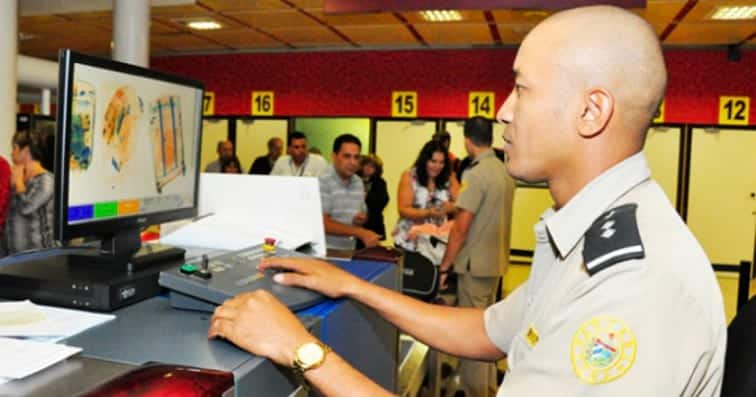
Since May 1, 2010, the Cuban government has required all visitors to Cuba to bring proof of travel insurance covering medical expenses on the island. Specifically, your health insurance policy must cover emergency medical treatment, hospitalization, and repatriation.
Another fact you must know about Cuba is that the authorities require travelers to settle any outstanding medical bills before leaving the country. If you have unpaid medical expenses, you must stay in the country until your debts are paid.
Types of Cuba Travel Insurance
There are two broad travel insurance policies for Cuba: travel health insurance, and trip or travel protection.
Many travel insurance companies bundle these policies into “travel insurance packages” or a “comprehensive travel insurance plan”. However, only the medical portion of your insurance policy is required to visit Cuba.
Most insurance policies will cover Covid-19 testing, treatment, and protocols that are part of the Cuba travel restrictions amid the pandemic.
Please, review the details of your travel insurance policy before purchasing to understand what is covered and what is not.
Required: Travel Health Insurance
Travel health insurance for Cuba covers medical and health-related expenses that may occur during your trip, including:
- Emergency medical treatment: the cost of medical treatment for unexpected illnesses or injuries on the island.
- Hospitalization: the cost of hospital stays, surgeries, and other medical procedures in Cuba.
- Emergency evacuation: the cost of transporting you to a hospital or back home in a medical emergency.
- Repatriation of remains: the cost of returning your body to your home country in the event of death.
- Prescription medication: the cost of necessary prescription medications.
- Dental treatment: the cost of emergency dental treatment.
Remember that some policies may have exclusions, such as pre-existing conditions or adventure sports.
Optional: Trip Protection Coverage
Trip protection insurance usually covers non-medical expenses such as:
- Trip cancellation or interruption: the cost of trip cancellation or interruption due to unexpected events such as illness, natural disasters, or the death of a loved one.
- Trip delay: the cost of unexpected expenses, such as meals and lodging, in the event of a travel delay.
- Delayed or lost baggage: the cost of lost, damaged, or stolen baggage and personal items.
The coverage you need will depend on your specific travel needs and risks. However, the Cuban government does not require trip protection insurance.
Before getting into the options to purchase Cuba travel insurance, let’s review the basics of getting travel insurance for Cuba if you are traveling from the US or Canada.
Travel Insurance for Cuba from the US
Due to the US embargo, the options for getting travel insurance for US citizens traveling to Cuba are limited. They include:
- Non-US travel insurance companies
- Airlines (included in the flight ticket in most cases)
Further below, we will get into the details of each option.
Travel Insurance for Cuba from Canada
Canadians traveling to Cuba can purchase Cuba travel insurance from a wider variety of sources, including:
- Travel agencies
- Non-US credit cards
Consider that Canadian provincial health insurance plans won’t include direct payments to medical facilities in Cuba or medical evacuation. They will be insufficient to meet the required medical coverage on the island.
As a Canadian, you should get the best travel health insurance you can afford for Cuba, including coverage for medical treatments, hospital stays, and medical repatriation.
Where to Buy Travel Insurance for Cuba?

You can purchase travel insurance for Cuba from several providers, including travel insurance companies, travel agencies, airlines, credit cards, and the Cuban insurance company Asistur.
1. Travel Insurance Companies
Some online and offline insurance companies offer Cuba travel insurance.
We went ahead and requested quotes from the top travel insurance providers to find you the better deal. Because most of our readers are from the US and Canada, we searched for Cuba travel insurance available for visitors from both countries.
Specifically, we gathered travel insurance quotes for a young couple traveling for one week to Cuba who planned to spend about 3,000 USD (the typical trip to Cuba cost ).
Travel Insurance Companies for Americans Traveling to Cuba
Travel insurance policies issued by US companies are not generally accepted in Cuba. For example, as of January 2023, these popular travel insurance providers in the US won’t offer coverage for people traveling to Cuba:
- Travel Guard
- World Nomads
- Seven Corners
However, a few travel insurance companies claim to offer insurance policies accepted in Cuba to US travelers, including:
- Trawick International
- Travel Insured International
The below table summarizes the insurance plans they offer and the starting price for a $3,000 seven-day trip to Cuba for two young people.
*Prices are per week per couple. They have been rounded out and are subject to change at any time.
Note : Even though we did our best to find the best travel insurance for Cuba, we cannot guarantee that policies from these companies will be accepted on the island. Ultimately, the Cuban immigration authorities will decide whether your travel insurance policy is acceptable.
Therefore, you should contact your favorite travel insurance company directly to confirm that their policies are recognized in the country.
Travel Insurance Companies for Canadians Traveling to Cuba
As a Canadian, you can purchase travel insurance for Cuba from a few trusted providers, including:
- RBC Insurance
The table below shows the type of insurance plan and associated cost for a young couple on a $3,000 seven-day trip to Cuba.
Consider your specific needs and compare policies from the providers above to find the best coverage at the best price. Once again, remember that only travel health insurance is required to enter Cuba. However, it may not cover all your needs.
2. Travel Agencies
Some travel agencies offer travel insurance for Cuba as part of a package deal, making it easy to purchase insurance while booking your trip. They include online travel agencies or search engines such as Kayak and Expedia.
You can get travel insurance for Cuba directly from these websites, either at the time of booking or as a separate transaction.
3. Airlines
If you are traveling from the US, in most cases, airlines will include your travel health insurance for Cuba in your ticket price. If not, you can purchase it from them. For example, United Airlines and American Airlines offer Cuba travel insurance for 25 USD per person. This policy is provided by ESICUBA and is valid for 30 days.
If you are flying from Canada or any other country, airlines generally offer Cuba travel insurance as an add-on after booking a flight. The coverage may include medical treatment, trip cancellation or interruption, baggage loss, and other travel-related risks.
However, Cuba travel insurance offered by airlines may not be the most comprehensive or cost-effective option. It may also have limitations and exclusions.
4. Non-US Credit Cards
Some credit cards offer travel insurance as a benefit to cardholders, including coverage for trip cancellation and interruption, medical emergencies and evacuation, baggage loss, and even dental benefits.
However, always check the terms and conditions of your credit card, especially if issued by US banks. That’s because US credit cards are not accepted in Cuba . Contact the card issuer directly to verify whether your benefits are applicable on the island.
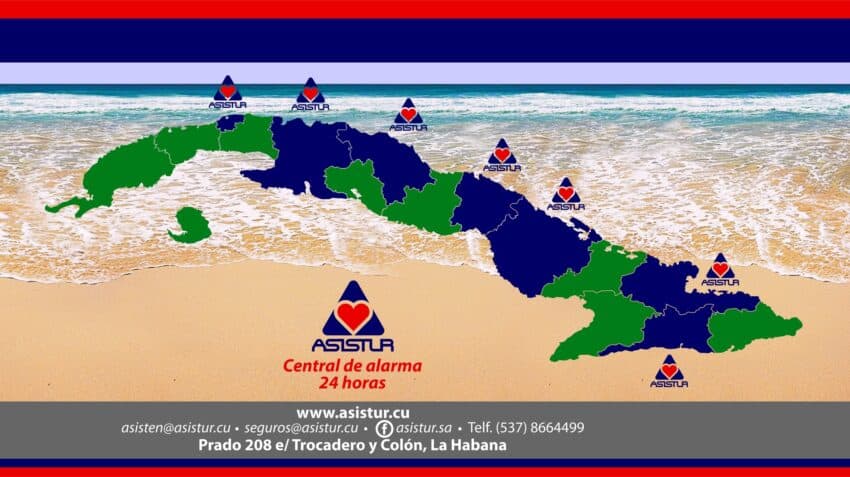
If your insurance policy is not accepted in Cuba, or you just landed on the island without travel medical insurance, you will have to purchase it from Asistur .
Asistur is a Cuban insurance broker that offers travel insurance policies from local providers ESICUBA and ESEN . They provide coverage for medical expenses, including emergency medical treatment, hospitalization, and repatriation. Some policies include travel protection coverage, such as baggage loss and delay, documentation management, and others.
The insurance policies from Asistur have multiple tiers, and prices start at 1 USD per traveler per day. If you plan to do high-risk physician activities or are 70 years or older, you must pay an additional 3 USD per day. Therefore, the cheapest option for our young couple traveling to Cuba would be 16 USD for the entire week.
You can purchase Cuban insurance policies on Cuba.Travel , a Cuban government’s website.
As a local provider, Asistur may be a good option for travelers who want to ensure that their insurance is recognized in Cuba. It’s also the only choice to purchase insurance upon arrival at Havana Airport . However, coverage may be limited and dealing with claims may become a hassle.
The Best Travel Insurance for Cuba
If your Cuba travel insurance is not bundled into your flight ticket, we recommend purchasing it from Insubuy because:
- It is the least expensive option.
- Their insurance plans claim to be accepted in Cuba .
- You can get a hassle-free online quote.
- It allows you to make side-by-side comparisons between multiple providers.
- You can purchase your insurance plan instantly.
- You can buy either travel health insurance, comprehensive travel insurance, or both.
- They have an Excellent rating in TrustPilot .
That said, it’s always a good idea to compare policies from multiple providers to find the best coverage for your specific needs and budget.
How Much is Travel Insurance to Cuba?
Travel insurance in Cuba starts at 16 USD per couple per week, but it can cost as much as 244 USD. The final cost will depend on your trip duration, the number and age of travelers, the type of insurance policy, and your insurance provider.
Protect Your Cuba Vacation
Travel health insurance is legally required for travel to Cuba. Along with the Cuba Tourist Visa , it’s one of the most important things to bring to your Cuba vacation .
Besides being an entry requirement, having travel insurance can help provide financial protection in medical emergencies and other travel-related risks. Although Cuba is generally safe, you are not exempt from these risks. Better safe than sorry!
Remember, you only need the medical portion of your travel insurance to enter the island. You can get it from multiple sources, including non-US insurance companies, airlines, travel agencies, credit cards, and the Cuban broker Asistur. We suggest purchasing it from Insubuy, the cheapest and most convenient travel insurance provider for Cuba.
Are we missing options to get medical coverage for your trip to Cuba? What insurance companies or facts did we overlook? Let us know in the comments below!
Essential Travel Logistics For Cuba
Cuban Tourist Card – If your Cuban Tourist Card (a.k.a Cuban Tourist Visa) isn’t bundled into your airline ticket or travel package, buy it only through EasyTouristCard .
Travel Health Insurance – Travel medical insurance is an entry requirement for Cuba, so you can’t skip it. Travelers can get travel health insurance for Cuba via Insubuy . Travel protection benefits such as trip interruption and cancellation, baggage delay insurance, etc., are not required.
Essential Items to Pack – Bring the essential travel necessities that you may not be able to get in Cuba:
- First aid kit
- Hand sanitizer
- Water bottle with filter
- Mosquito repellent
- Pin adapter (for Europeans)
- Travel guide
- Spanish-English phrasebook
- Suggested Reading: The Cubans: Ordinary Lives in Extraordinary Times
Read our complete packing list for Cuba .
Find Accommodations – Find hotels or casas particulares (private accommodations) on Skyscanner , which lists thousands of accommodations available in Cuba.
Book Your Flight – Book cheap flights to Cuba on Skyscanner , our favorite flight search engine to find deals on flights to Cuba.
Share Article:
About the Author
Tour republic.
Tour Republic is a marketplace where you can discover, book, and review the very best experiences Cuba has to offer. We are a team of tourism professionals and journalists who have partnered with Cuban entrepreneurs to provide travel experiences that can transform your trip into a life-changing adventure. We also share our profound love for Cuba through in-depth travel guides, myth-busting articles, and captivating narratives. Whether you want to explore Cuba's wonders or understand its intricacies, our blog posts are your gateway to the heart of this extraordinary country.
Leave a Reply Cancel reply
You might also like.

Cuban Currency: The Ultimate Guide for Travelers (2024 Update)
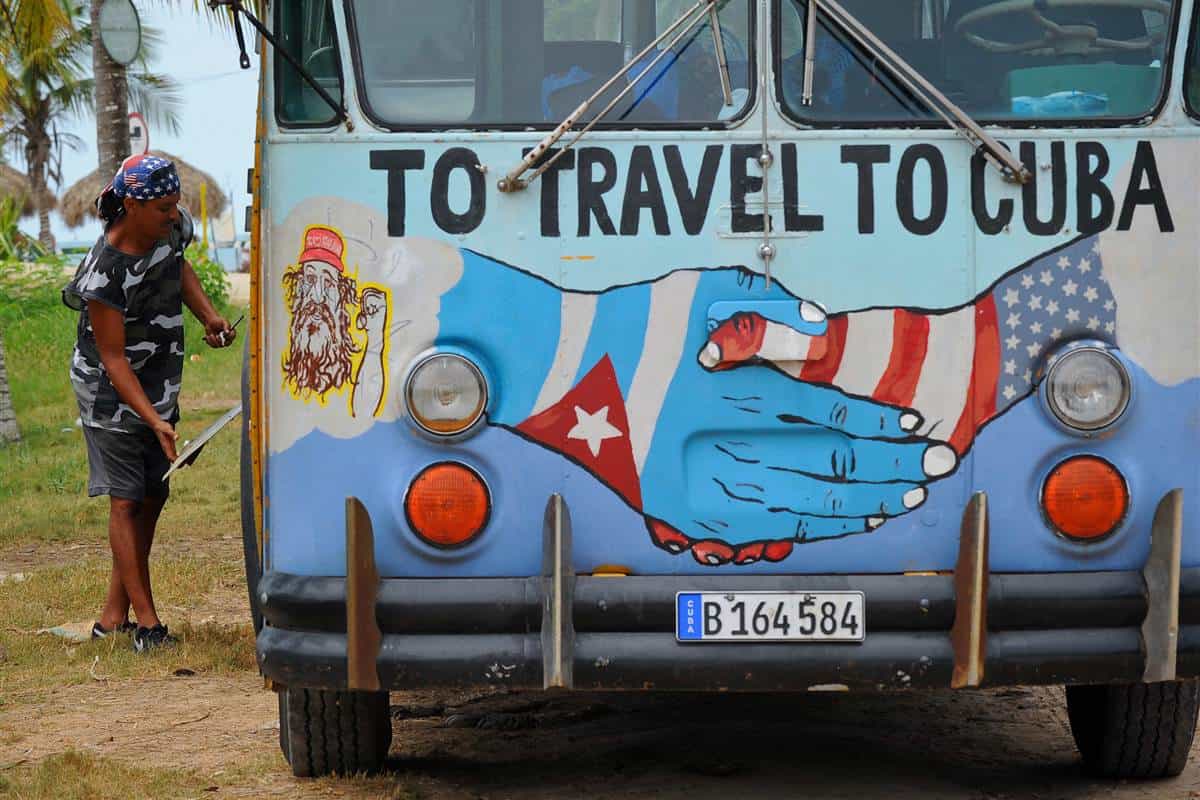
Beyond the Ban: A Guide to Americans Visiting Cuba in 2024.
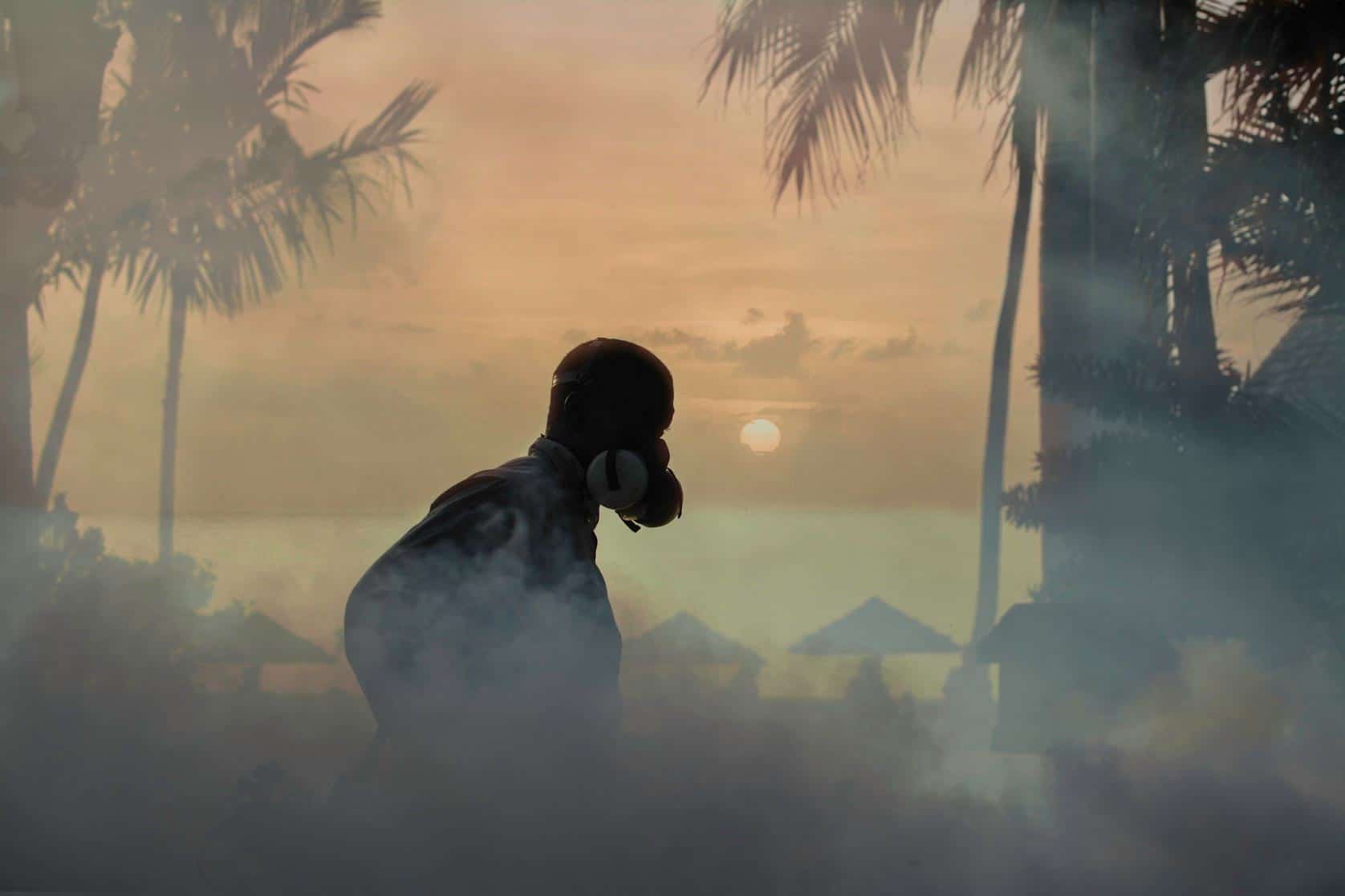
Sand Fleas and Mosquitoes in Cuba: The Survival Guide (2024)
Other stories, booking the viazul bus in cuba: step-by-step guide (2023), havana airport (hav): complete guide to the main cuban airport (2023).
Medical + Travel Insurance for Cuba: What You Need to Know

Do you need your own travel medical insurance when you visit Cuba? The short answer is yes! In fact, it’s been that way since 2010 when the Cuban government made it a requirement that all visitors to Cuba have personal health cover. Moreover, as of 2021, it’s also been a requirement that the same policy includes coverage for Covid-19.
Although Cuba’s national health care system can be accessed by foreign visitors, it’s only free to Cuban citizens. Furthermore, there aren’t any private hospitals, so medical treatment can be expensive for international visitors. As a result, you’ll have to pay for your treatment out of your own pocket. Therefore, we strongly recommend you get adequate cover in the case of those unforeseen accidents or illnesses that can ruin a holiday
Arriving at the Airport in Cuba
Please be aware that when you arrive at the airport in Cuba, it’s likely immigration officers will ask to see a copy of your medical insurance. Consequently, remember to bring a printed copy of your policy with you. If you can’t demonstrate proof of purchase, then you’ll be required to buy a policy from the government-owned Asistur. This is a tourist assistance agency that sells travelers medical insurance, and they have an office at the airport.
Cuba – Travel Insurance For US Citizens
Please note that American citizens flying from the USA have their medical cover automatically included in the cost of the airfare. In addition, your boarding pass serves as proof of the insurance, so please keep it handy throughout your trip.
American citizens arriving into Cuba from other destinations are personally responsible for purchasing the appropriate medical insurance.
Tips for Choosing the Best Medical Insurance Policy for Cuba
- Make certain you have an appropriate amount of coverage for any unforeseen medical expenses including emergency evacuation and repatriation back to your own country. A suggested minimum would be $50,000 USD.
- It’s vital that the policy covers any pre-existing medical conditions that you may have. Don’t leave anything out when filling in the application!
Recommended – A Comprehensive Travel Insurance Policy
On top of the medical insurance outlined above, we strongly recommend that you purchase a more comprehensive travel insurance policy to protect you and your family against unforeseen circumstances. These can include significant weather events or illness/injury to yourself or other family members. It’s essential that this is done at the time you book your flights and tour arrangements for Cuba.
What Coverage Should You Look for in a Travel Policy?
- Coverage for lost baggage or personal items being stolen. Although Cuba is a very safe place in many ways, like anywhere you still need take common sense precautions.
- Furthermore, support in the event of an emergency is available. This includes translation and legal assistance and the arrangement of emergency travel plans on your behalf.
- Additionally, there is cover for the replacement of a lost passport. While there are Canadian, UK and USA embassies in Cuba, neither New Zealand nor Australia are represented in the country so getting a replacement passport for these two countries would be not as straightforward.
Where Can I Get Travel Insurance for Cuba?
https://www.allianztravelinsurance.com https://www.travelexinsurance.com https://heymondo.com/travel-insurance-international /
Do I Need Vaccines to Visit Cuba?
BUILD YOUR OWN TAILOR-MADE CUBA TOUR ITINERARY WITH US!
- Group Tours
- Private Tours
- Custom Tours
- Browse All Tours
- Entrepreneurs
- Festivals & Events
- Family Travel
- Celebrations
- Solo Travel
- Affinity Groups
- Educational Groups
- Corporate Groups
- Yoga Groups
- Heritage Groups
- Photography Workshops
- Events & Conferences
- U.S.-Cuba Travel Rules
- Visa and Travel License
- Best Hotels in Cuba
- Why Visit Cuba
- When to Visit
- Where to Go
- Experience Gallery
- Meet the Cuban People
- Why Candela?
- Our Promise
- Safety First
- Meet Our Team
- Destination Specialist
- You Are Family
- Social Impact
- How to Get to Cuba
- Cuban Souvenirs: What You Can Bring Back
- The Ultimate Cuba Packing List
- Food in Cuba
- Cuba and the Art of Tobacco
- Money in Cuba
Travel Medical Insurance: Preparing For Your Trip To Cuba
Traveling to any destination requires proper planning and preparation , and Cuba is no different. An important thing to remember is that travelers to Cuba are required to have travel medical insurance upon their arrival. Obtaining travel medical insurance is easy and inexpensive.
The most common way of purchasing travel medical insurance is simply by buying your plane ticket on a commercial flight flying directly from the U.S. to Cuba . Most major U.S. airline providers like United, Delta, American Airlines and Jet Blue automatically include the cost of this insurance in your ticket price. Your boarding pass serves as proof of insurance. You will want to be sure to keep your boarding pass with you throughout your trip in the unlikely event that you need to use it. For travelers flying to Cuba from outside of the United States, ask your airline provider if travel medical insurance is included in your plane ticket.
ASISTUR is a Cuban company that organizes medical and healthcare services to travelers and provides the medical coverage that is included in most U.S. plane tickets. ASISTUR medical coverage is only valid for the dates of your stay in Cuba. This coverage is limited to emergency medical issues that may arise while in Cuba. This policy does not include non-emergency treatment or non-emergency services for pre-existing conditions. ASISTUR coverage includes general emergency medical services and procedures while in Cuba up to $25,000 as well as medical evacuation from Cuba up to $7,000. This travel medical insurance coverage is limited. In the unlikely case of an extreme medical emergency, this coverage may not be sufficient.
Travelers who wish for more coverage or who are not covered through their purchase of a plane ticket may purchase coverage from a travel insurance provider like Allianz. Click here to learn more about Allianz and its travel medical plans.
Cuba Candela travelers are well taken care of. In the unlikely case that you do need medical assistance on your trip, your Cuba Candela host will assist you. Below please note the address and contact information of the Cuban hospital for travelers, “Clinica Central Cira Garcia”.
Address: Calle 20 #4101 corner of Avenida 41, Miramar, Playa
Phone number: +53 7204-2811
Website: http://www.cirag.cu/en/
Transportation In Cuba: How To Get Around Safely
How To Connect To The Internet In Cuba
How To Use Your Mobile Phone In Cuba
Privacy overview.
Winter is here! Check out the winter wonderlands at these 5 amazing winter destinations in Montana
- Travel Destinations
What Travel Insurance Do I Need For Cuba
Published: December 18, 2023
Modified: December 28, 2023
by Anya Drew
- Safety & Insurance
- Travel Guide
Introduction
Cuba, with its vibrant culture, rich history, and breathtaking landscapes, has become an increasingly popular travel destination for adventurers and leisure seekers alike. As you plan your trip to this captivating island, it's essential to consider various aspects of your travel arrangements, including the often overlooked yet crucial element of travel insurance.
In this comprehensive guide, we will delve into the intricacies of obtaining the right travel insurance for your Cuban adventure. From understanding Cuba's healthcare system to exploring the types of travel insurance available and the key considerations for selecting the most suitable coverage, this article aims to equip you with the knowledge and confidence to make informed decisions about your travel insurance needs for Cuba.
Whether you're envisioning exploring the cobblestone streets of Old Havana, immersing yourself in the rhythm of Afro-Cuban beats, or basking in the sun on the pristine beaches of Varadero, ensuring that you have the appropriate travel insurance will provide peace of mind and essential support in unforeseen circumstances. Let's embark on this journey to unravel the intricacies of travel insurance for Cuba, ensuring that your adventure is not only memorable but also stress-free.
Understanding Cuba’s Healthcare System
Before delving into the specifics of travel insurance for your Cuban excursion, it’s imperative to grasp the nuances of Cuba’s healthcare system. Cuba boasts a renowned healthcare system that is accessible to both locals and visitors. The country takes pride in its universal healthcare coverage, which is provided to all Cuban citizens and residents.
Cuba’s healthcare system is primarily operated by the government, with an extensive network of hospitals, clinics, and healthcare facilities spread across the island. The emphasis on preventive care and public health initiatives has contributed to Cuba’s notable healthcare outcomes, despite economic challenges.
For travelers, it’s essential to be aware of the healthcare landscape in Cuba. While major cities such as Havana feature well-equipped medical facilities, rural areas may have limited access to advanced medical care. Language barriers and differing healthcare practices may also pose challenges for international visitors seeking medical assistance.
Understanding the strengths and potential limitations of Cuba’s healthcare system underscores the importance of securing comprehensive travel insurance before embarking on your journey. While Cuba offers medical services to tourists for a fee, having travel insurance ensures that you can access quality healthcare without financial concerns in the event of illness or injury during your visit.
By familiarizing yourself with Cuba’s healthcare infrastructure and the implications for travelers, you can make informed decisions when selecting the most suitable travel insurance coverage for your trip. Now that we’ve gained insight into Cuba’s healthcare system, let’s explore the types of travel insurance tailored to meet your specific needs in this captivating destination.
Types of Travel Insurance for Cuba
When considering travel insurance for your Cuban adventure, it’s essential to explore the various types of coverage available to ensure comprehensive protection throughout your trip. Here are the key types of travel insurance to consider:
- Medical Insurance: This type of travel insurance provides coverage for medical expenses, including emergency medical treatment, hospitalization, and medication. Given the importance of accessing quality healthcare during your travels, especially in a foreign country like Cuba, medical insurance offers peace of mind and financial security in unforeseen medical situations.
- Emergency Evacuation Insurance: In the event of a serious illness or injury that requires specialized medical care not available locally, emergency evacuation insurance covers the costs associated with medical transport to the nearest appropriate medical facility or repatriation to your home country for further treatment.
- Trip Cancellation Insurance: This type of insurance safeguards your financial investment in the trip by providing reimbursement for non-refundable trip expenses if you need to cancel or interrupt your journey due to covered reasons, such as illness, injury, or unforeseen circumstances.
- Baggage and Personal Belongings Insurance: Protecting your belongings during travel is vital, and this insurance offers coverage for lost, stolen, or damaged luggage and personal items, providing financial compensation to replace essential belongings.
- Travel Delay Insurance: In the event of unexpected travel delays, such as flight cancellations or disruptions, this insurance provides coverage for additional expenses incurred, such as accommodation, meals, and alternative transportation arrangements.
Each type of travel insurance serves a specific purpose in safeguarding your well-being and financial interests during your Cuban journey. By carefully assessing your individual needs and considering the potential risks, you can select the most suitable combination of insurance coverage to ensure a worry-free and fulfilling travel experience in Cuba.
Key Considerations for Choosing Travel Insurance
When navigating the myriad of travel insurance options for your Cuban excursion, it’s crucial to consider several key factors to ensure that your chosen coverage aligns with your specific needs and provides comprehensive protection. Here are essential considerations to guide your decision-making process:
- Comprehensive Medical Coverage: Given the importance of access to quality healthcare during international travel, prioritize travel insurance plans that offer extensive medical coverage, including emergency medical treatment, hospitalization, and medical evacuation if needed.
- Coverage for Pre-Existing Conditions: If you have pre-existing medical conditions, seek travel insurance that provides adequate coverage for related medical care and potential exacerbations during your trip to Cuba.
- Destination-Specific Coverage: Ensure that your travel insurance is tailored to the unique aspects of traveling in Cuba, considering factors such as medical facilities available, language barriers, and potential travel disruptions specific to the country.
- Adventure Activities Coverage: If you plan to engage in adventurous activities such as hiking, snorkeling, or diving in Cuba, verify that your insurance includes coverage for potential injuries or emergencies related to these activities.
- 24/7 Emergency Assistance: Opt for travel insurance that provides round-the-clock emergency assistance services, including access to multilingual support and coordination of medical care in Cuba.
- Policy Exclusions and Limitations: Thoroughly review the policy’s exclusions and limitations to understand the scope of coverage, ensuring that it aligns with your anticipated activities and potential risks during your Cuban travels.
- Reputation and Claims Process: Research the reputation of insurance providers and their claims process to select a reliable company known for efficient claims handling and responsive customer support.
By carefully evaluating these considerations and engaging in thorough research, you can make an informed decision when selecting travel insurance for your Cuban adventure. Prioritizing comprehensive medical coverage, understanding policy specifics, and anticipating the unique aspects of your trip will empower you to embark on your Cuban journey with confidence and security.
As you prepare to embark on your unforgettable journey to Cuba, the significance of obtaining the right travel insurance cannot be overstated. By gaining insight into Cuba’s healthcare system, exploring the types of travel insurance available, and considering essential factors when selecting coverage, you are equipped to safeguard your well-being and financial interests during your travels.
Understanding the strengths and potential limitations of Cuba’s healthcare infrastructure underscores the importance of securing comprehensive travel insurance. Whether you plan to immerse yourself in the cultural tapestry of Havana, traverse the lush landscapes of Viñales, or unwind on the pristine shores of Cayo Coco, having the appropriate travel insurance provides peace of mind and essential support in unforeseen circumstances.
When evaluating travel insurance options, prioritize comprehensive medical coverage, destination-specific considerations, and 24/7 emergency assistance to ensure that your chosen plan aligns with the unique aspects of your Cuban adventure. By addressing these key considerations and selecting reputable insurance providers, you can embark on your Cuban journey with confidence, knowing that you are prepared for unexpected eventualities.
As you venture into the vibrant streets of Trinidad or savor the flavors of authentic Cuban cuisine, the right travel insurance serves as a reliable safety net, allowing you to fully immerse yourself in the wonders of this captivating destination. With careful planning and informed decision-making, your Cuban adventure is poised to be not only enriching and memorable but also worry-free and secure.
So, as you eagerly anticipate the rhythmic beats of salsa music and the warm embrace of Cuban hospitality, take the necessary steps to secure the appropriate travel insurance, ensuring that your journey unfolds seamlessly, with every moment filled with discovery and delight.

- Privacy Overview
- Strictly Necessary Cookies
This website uses cookies so that we can provide you with the best user experience possible. Cookie information is stored in your browser and performs functions such as recognising you when you return to our website and helping our team to understand which sections of the website you find most interesting and useful.
Strictly Necessary Cookie should be enabled at all times so that we can save your preferences for cookie settings.
If you disable this cookie, we will not be able to save your preferences. This means that every time you visit this website you will need to enable or disable cookies again.
- Best Travel Insurance 2024
- Cheapest Travel Insurance
- Trip Cancellation Insurance
- Cancel for Any Reason Insurance
- Seniors' Travel Insurance
- Annual Travel Insurance
- Cruise Insurance
- COVID-19 Travel Insurance
- Travel Medical Insurance
- Medical Evacuation Insurance
- Pregnancy Travel Insurance
- Pre-existing Conditions Insurance
- Mexico Travel Insurance
- Italy Travel Insurance
- France Travel Insurance
- Spain Travel Insurance
- Canada Travel Insurance
- UK Travel Insurance
- Germany Travel Insurance
- Bahamas Travel Insurance
- Costa Rica Travel Insurance
- Disney Travel Insurance
- Schengen Travel Insurance
- Is travel insurance worth it?
- Average cost of travel insurance
- Is airline flight insurance worth it?
- Places to travel without a passport
- All travel insurance guides
- Best Pet Insurance 2024
- Cheap Pet Insurance
- Cat Insurance
- Pet Dental Insurance
- Pet Insurance That Pays Vets Directly
- Pet Insurance For Pre-Existing Conditions
- Pet Insurance with No Waiting Period
- Paw Protect Review
- Spot Pet Insurance Review
- Embrace Pet Insurance Review
- Healthy Paws Pet Insurance Review
- Pets Best Insurance Review
- Lemonade Pet Insurance Review
- Pumpkin Pet Insurance Review
- Fetch Pet Insurance Review
- Figo Pet Insurance Review
- CarePlus by Chewy Review
- MetLife Pet Insurance Review
- Average cost of pet insurance
- What does pet insurance cover?
- Is pet insurance worth it?
- How much do cat vaccinations cost?
- How much do dog vaccinations cost?
- All pet insurance guides
- Best Business Insurance 2024
- Business Owner Policy (BOP)
- General Liability Insurance
- E&O Professional Liability Insurance
- Workers' Compensation Insurance
- Commercial Property Insurance
- Cyber Liability Insurance
- Inland Marine Insurance
- Commercial Auto Insurance
- Product Liability Insurance
- Commercial Umbrella Insurance
- Fidelity Bond Insurance
- Business Personal Property Insurance
- Medical Malpractice insurance
- California Workers' Compensation Insurance
- Contractor's Insurance
- Home-Based Business Insurance
- Sole Proprietor's Insurance
- Handyman's Insurance
- Photographer's Insurance
- Esthetician's Insurance
- Salon Insurance
- Personal Trainer's Insurance
- Electrician's Insurance
- E-commerce Business Insurance
- Landscaper's Insurance
- Best Credit Cards of 2024
- Best Credit Card Sign-Up Bonuses
- Best Instant Approval Credit Cards
- Best Cash Back Credit Cards
- Best Rewards Credit Cards
- Best Credit Cards for Bad Credit
- Best Balance Transfer Credit Cards
- Best College Student Credit Cards
- Best 0% APR Credit Cards
- Best First Credit Cards
- Best No Annual Fee Cards
- Best Travel Credit Cards
- Best Hotel Credit Cards
- Best American Express Cards
- Best Amex Delta SkyMiles Cards
- Best American Express Business Cards
- Best Capital One Cards
- Best Capital One Business Cards
- Best Chase Cards
- Best Chase Business Cards
- Best Citi Credit Cards
- Best U.S. Bank Cards
- Best Discover Cards
- Amex Platinum Card Review
- Amex Gold Card Review
- Amex Blue Cash Preferred Review
- Amex Blue Cash Everyday Review
- Capital One Venture Card Review
- Capital One Venture X Card Review
- Capital One SavorOne Card Review
- Capital One Quicksilver Card Review
- Chase Sapphire Reserve Review
- Chase Sapphire Preferred Review
- United Explorer Review
- United Club Infinite Review
- Amex Gold vs. Platinum
- Amex Platinum vs. Chase Sapphire Reserve
- Capital One Venture vs. Venture X
- Capital One Venture X vs. Chase Sapphire Reserve
- Capital One SavorOne vs. Quicksilver
- Chase Sapphire Preferred vs. Capital One Venture
- Chase Sapphire Preferred vs. Amex Gold
- Delta Reserve vs. Amex Platinum
- Chase Sapphire Preferred vs. Reserve
- How to Get Amex Pre-Approval
- Amex Travel Insurance Explained
- Chase Sapphire Travel Insurance Guide
- Chase Pay Yourself Back
- CLEAR vs. TSA PreCheck
- Global Entry vs. TSA Precheck
- Costco Payment Methods
- All Credit Card Guides
- Citibank Savings Account Interest Rate
- Capital One Savings Account Interest Rate
- American Express Savings Account Interest Rate
- Western Alliance Savings Account Interest Rate
- Barclays Savings Account Interest Rate
- Discover Savings Account Interest Rate
- Chase Savings Account Interest Rate
- U.S. Bank Savings Account Interest Rate
- Marcus Savings Account Interest Rate
- Synchrony Bank Savings Account Interest Rate
- Ally Savings Account Interest Rate
- Bank of America Savings Account Interest Rate
- Wells Fargo Savings Account Interest Rates
- SoFi Savings Account Interest Rate
- UFB Direct Savings Account Interest Rate
- Best Savings Accounts & Interest Rates
- Best High Yield Savings Accounts
- Best 7% Interest Savings Accounts
- Best 5% Interest Savings Accounts
- Savings Interest Calculator
- Emergency Fund Calculator
- Pros and Cons of High-Yield Savings Accounts
- Types of Savings Accounts
- Checking vs Savings Accounts
- Average Savings by Age
- How Much Should I Have in Savings?
- How to Make Money
- How to Save Money
- Compare Best Checking Accounts
- Compare Online Checking Accounts
- Best Business Checking Accounts
- Compare Best Teen Checking Accounts
- Best Student Checking Accounts
- Best Joint Checking Accounts
- Best Second Chance Checking Accounts
- Chase Checking Account Review
- Bluevine Business Checking Review
- Amex Rewards Checking Account Review
- Best Money Market Accounts
- U.S. Bank Money Market Account
- Money Market vs. Savings Account
- Best CD Rates
- Best 1-Year CD Rates
- Best 6-Month CD Rates
- Best 3-Month CD Rates
- 6% CD Rates
- Synchrony Bank CD Rates
- Capital One CD Rates
- Barclays CD Rates
- E&O Professional Liability Insurance
- Best Savings Accounts & Interest Rates
- All Insurance Guides
- Cuba Travel Insurance
On This Page
- Key takeaways
Do I need travel insurance to visit Cuba?
Our top picks for the best cuba travel insurance, cuba travel information & requirements, why should i get travel insurance for cuba, what types of coverage do i need to travel to cuba, what isn’t covered by travel insurance for a trip to cuba, how much does travel insurance for cuba cost, tips for buying the best travel insurance for cuba, faq: travel insurance for cuba, cuba travel insurance.
Travel Insurance for Trips Cuba: Tips & Safety Info
- All travelers to Cuba are required to have health insurance , but U.S. plans are not accepted.
- Comprehensive travel insurance can provide the required medical coverage and help you cover the costs of trip delays, cancellations, and lost or stolen personal items.
- Cuba does not have the same safety standards or infrastructure as the United States, so travel insurance can be extremely useful after an accident.
- Travel insurance for Cuban tourists starts at around $7 per day, but your actual costs will vary.
- Try using our online comparison tool to find the right policy for your trip. Compare all your coverage options and find the best price to suit your needs.
Our top picks for the best cuba travel insurance
- Detour Insurance: Best Value Coverage
- IMG: Best Rated for Travel Delay
- Travel Insured International: Best for Non-Medical Evac Coverage
Detour Insurance
Travel Insured International
Cuban rules require all travelers to carry medical insurance for the duration of their trip. Your U.S.-based health insurance won’t work — you’ll need to buy separate coverage. At a minimum, the policy should provide medical coverage .
Many U.S. airlines automatically add insurance to your ticket price. American Airlines and United Airlines both charge $25 for a policy that’s active for 30 days. If you’re staying longer, you’ll need to buy extra coverage.
The Cuban government doesn’t publish specific insurance requirements. As a general rule, your policy should provide coverage for emergency medical care and evacuation.
Best Value Coverage
Best rated for travel delay, why we like it.
- Purchase your plan up until one day before you depart
- Generous limits for trip delays, emergency evacuation, and more
- Pre-existing condition waiver available if purchased within 20 days of initial trip deposit
- 24/7 emergency travel assistance included
- Coronavirus-related medical expenses covered
- Plan gets notably more expensive with age
Best for Non-Medical Evac Coverage
- Travel delay coverage kicks in after just six hours
- Generous $150,000 non-medical evacuation coverage
- CFAR and IFAR coverage not included
- Baggage delay coverage only kicks in after 12 hours
- No rental car coverage
Cuban travel rules for Americans have changed several times in the last decade. Here’s a quick overview of the current requirements:
Do I need a visa or passport to visit Cuba?
Americans need a passport and a license to visit Cuba. Your passport must be valid for a minimum of 6 months from the date you land. In addition, you should have two free passport pages to accommodate entry and exit stamps.
To travel to a Cuban city directly from the United States, you must qualify for a license from the Department of Treasury’s Office of Foreign Assets Control (OFAC). If your reason for travel falls into one of 12 approved categories — including family visits, journalistic activity, educational activities, or humanitarian projects — you can travel under a general license. You don’t need to apply for this license, but you should be able to prove that you meet the requirements for the appropriate category.
Need to visit for another reason? You must apply for a specific license from OFAC. Keep in mind that American citizens are not allowed to travel to Cuba from the United States purely for tourism.
COVID-19 restrictions
The Cuban government no longer requires incoming travelers to provide proof of a COVID-19 vaccine or a negative COVID-19 test.
Is it safe to visit Cuba?
It’s safe to travel to Cuba — just make sure you take normal precautions. The U.S. Department of State gives the country a Level 2 travel advisory , largely due to the potential for petty crime.
The Cuban security situation can change quickly. To get updates, sign up for the Smart Traveler Enrollment Program (STEP). Your STEP registration also helps the government find you and provide assistance in case of an emergency. When you’re in the country, the emergency numbers are 104 (ambulance), 105 (fire), and 106 (police), and you can always call the State Department’s 24-hour line for help.
Risk of petty or violent crime
Petty crime is common in Cuba. Pickpocketing and theft of personal items are possible, both in public and in your hotel room. Use the same safety strategies you would in any major city. Don’t carry large amounts of cash, protect your wallet or bag, avoid flashy displays of wealth , and stay alert to your surroundings at all times. Theft can still happen, of course, and many travel insurance policies can reimburse you for stolen items.
Violent crime rates are low in Cuba. However, female travelers have reported incidents of harassment or assault. Stay safe by paying close attention to your drinks, staying away from isolated areas, and avoiding going out alone after dark. In the unlikely event that you’re attacked, travel insurance is critical for both treatment and repatriation to the United States.
Potential for demonstrations
You may run into demonstrations during your trip. Keep your distance — the government may respond with violence, as they did during widespread protests in 2021 . Travelers should never participate in any type of demonstration; if you’re hurt in the process, your insurance may not pay. If you’re injured accidentally, however, a travel policy can help cover the costs of medical care and transportation.
Swimming safety
When you’re accustomed to the safety standards at beaches and pools in the United States, the conditions in Cuba may come as a surprise. Lifeguards aren’t always present, and rescue services might not be equipped to offer adequate assistance. As long as you’re not participating in water activities that the insurance provider excludes, your policy can be useful after a potential injury or accident.
Poor road safety conditions
Roads in Cuba tend to be poorly maintained, especially in rural areas. Safety standards aren’t the same as in the United States; drivers may not follow expected laws or procedures, and you may see livestock wandering freely. As a result, there is a risk of getting in an accident, damaging a rental car, or experiencing delays. Choose a travel insurance policy that helps make up any costs you incur as a result.
Travel insurance for a Cuban trip usually falls into one of two categories:
Medical-based travel insurance
- Comprehensive travel insurance
Coverage can vary significantly between these policies, so it’s important to understand the difference before you buy.
These policies are designed to cover expenses for emergency medical treatment you need. It’s a good option if you need cheap travel insurance .
Most plans also provide coverage for medical evacuation. This is critical for trips to Cuba — hospitals are often underfunded, understaffed, and poorly supplied, so you may need to return home to get treatment. Because transport often happens on special medically equipped planes, it can be extremely expensive. Make sure your policy offers ample coverage.
Comprehensive travel coverage
Comprehensive travel insurance is an all-in-one option. In addition to medical coverage, it helps cover the costs in case of trip cancellation, delays, damaged personal items, and baggage loss.
Given the challenging economic conditions in Cuba and the country’s tense relations with the U.S. government, the situation on the ground can change rapidly. A comprehensive policy helps minimize your losses if something goes wrong.
Optional add-ons
Some insurance providers offer add-ons that expand your policy’s coverage. A common example is “ cancel for any reason” (CFAR) coverage . With this add-on, you can get a partial reimbursement for non-refundable trip costs — even if your reason for cancellation isn’t covered under the original policy. So, if something comes up at work or a pre-existing health condition flares up, the trip won’t be a total loss.
In most cases, your travel insurance will not cover :
- Extreme sports
- Forecasted storms or natural disasters
- Routine medical care
- Pre-existing conditions
- Traveling against the advice of government agencies
According to official sales data from Squaremouth , travel insurance for Cuba costs an average of $214.98.
Our official sales figures over the past year show that our customers paid an average of $123.35 for travel insurance to Cuba.
Cuba travel insurance is relatively expensive compared to other destinations close to the United States. We compiled a variety of quotes to help you understand what to expect. Each price below is for a 35-year-old from Illinois who’s visiting the country for 7 days at a price of $2,000.
Based on these quotes, an insurance policy for a weeklong Cuban trip costs an average of $83.52. Your actual price could be considerably higher or lower depending on factors such as:
- State of residence
- Trip length
- Number of travelers
Buying the best travel insurance is a matter of making sure you’ve got the coverage you need. While there’s no one-size-fits-all solution, we’ve put together a list of the best tips to ensure you get the right coverage for your needs.
Look at how you’re planning to travel
Some travel insurance policies only cover certain modes of transportation.
Review your planned activities
Are you planning any adventure sports during your trip? Make sure your travel insurance covers each activity. If not, look into additional high-risk coverage.
Check with your airline
When you fly on a U.S. carrier, your ticket usually includes insurance. Review the coverage limits to make sure they meet your needs
Read your credit card terms
If you booked your trip with a credit card, read the benefits statement carefully. Certain cards offer coverage for trip cancellation, delays, interruption, and lost baggage
Look into flexible coverage options
Some providers offer extra services that expand your coverage and make it easier to get reimbursed
Is travel insurance required to visit Cuba?
Yes — the country requires every tourist to have travel health insurance.
Can I use my U.S. health insurance in Cuba?
You cannot use your U.S. health insurance on a Cuban trip. Instead, you’ll need to purchase a separate policy that’s valid in Cuba.
How much is travel insurance for Cuba?
The cost of Cuba travel insurance varies based on your age, trip length, and place of residence. If you want coverage for cancellation or interruption , the policy will also account for the cost of the trip. On average, a 30-year-old can expect to pay around $83 to cover a weeklong Cuban trip.

Imogen Sharma is an experienced writer, specializing in business, culture, and financial guidance for young adults. She has contributed to articles for Varo Bank , Lendzi , MoneyTips and Indeed , providing invaluable insights into budgeting, financial planning, and lines of credit.
As a dedicated self-employed writer, she cherishes the opportunity to share her knowledge and experience with others, offering advice so they can master their bank accounts and secure their financial futures. Her articles, published in CMSWire , Reworked , WalletGenius and The Customer , serve as actionable guides to help people make solid financial decisions.
Prior to her writing career, Imogen honed her financial acumen in management roles, excelling in P&L analysis, budgeting and HR. During her tenure at Smith & Wollensky in London, her strategic contributions contributed to a 2% increase in EBITDA over a year, demonstrating her ability to drive financial performance and organizational success.
Imogen’s writing style combines expertise with accessibility, making complex financial topics easily understandable and actionable. With a focus on the long game, she encourages readers to approach financial matters with enthusiasm and determination.
Explore related articles by topic
- All Travel Insurance Articles
- Learn the Basics
- Health & Medical
- Insurance Provider Reviews
- Insurance by Destination
- Trip Planning & Ideas
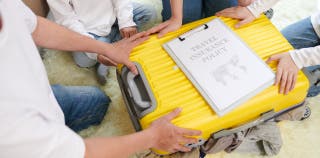
Best Travel Insurance Companies & Plans in 2024
Best Medical Evacuation Insurance Plans 2024

Best Travel Insurance for Seniors

Best Cruise Insurance Plans for 2024

Best COVID-19 Travel Insurance Plans for 2024
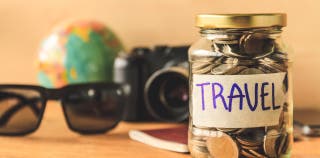
Best Cheap Travel Insurance Companies - Top Plans 2024

Best Cancel for Any Reason (CFAR) Travel Insurance

Best Annual Travel Insurance: Multi-Trip Coverage

Best Travel Medical Insurance - Top Plans & Providers 2024

- Is Travel Insurance Worth It?

Is Flight Insurance Worth It? | Airlines' Limited Coverage Explained
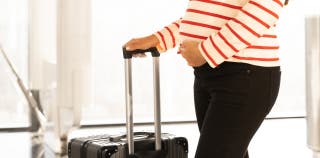
Guide to Traveling While Pregnant: Pregnancy Travel Insurance

10 Romantic Anniversary Getaway Ideas for 2023

Best Travel Insurance for Pre-Existing Medical Conditions May 2024

22 Places to Travel Without a Passport in 2024

Costa Rica Travel Insurance: Requirements, Tips & Safety Info

Best Spain Travel Insurance: Top Plans & Cost

Best Italy Travel Insurance: Plans, Cost, & Tips

Best Travel Insurance for your Vacation to Disney World

Chase Sapphire Travel Insurance Coverage: What To Know & How It Works

2024 Complete Guide to American Express Travel Insurance
Schengen Travel Insurance: Coverage for your Schengen Visa Application
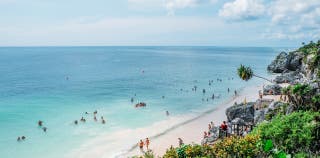
Mexico Travel Insurance: Top Plans in 2024

Best Places to Spend Christmas in Mexico this December

Travel Insurance to Canada: Plans for US Visitors
Best Travel Insurance for France Vacations in 2024
Travel Insurance for Germany: Top Plans 2024

Best UK Travel Insurance: Coverage Tips & Plans May 2024

Best Travel Insurance for Trips to the Bahamas

Europe Travel Insurance: Your Essential Coverage Guide

Best Trip Cancellation Insurance Plans for 2024
What Countries Require Travel Insurance for Entry?
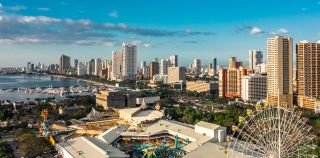
Philippines Travel Insurance: Coverage Requirements & Costs

Travel Insurance for the Dominican Republic: Requirements & Tips
AXA Travel Insurance Review May 2024

Best Travel Insurance for Thailand in 2024

Travel Insurance for a Trip to Ireland: Compare Plans & Prices

Travel Insurance for a Japan Vacation: Tips & Safety Info

Faye Travel Insurance Review May 2024

Travel Insurance for Brazil: Visitor Tips & Safety Info

Travel Insurance for Bali: US Visitor Requirements & Quotes

Travel Insurance for Turkey: U.S. Visitor Quotes & Requirements

Travel Insurance for India: U.S. Visitor Requirements & Quotes

Australia Travel Insurance: Trip Info & Quotes for U.S. Visitors

Generali Travel Insurance Review May 2024

Travelex Travel Insurance Review for 2024

Tin Leg Insurance Review for May 2024

Travel Insured International Review for 2024

Seven Corners Travel Insurance Review May 2024

HTH WorldWide Travel Insurance Review 2024: Is It Worth It?
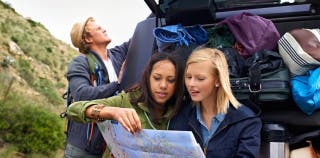
Medjet Travel Insurance Review 2024: What You Need To Know

Antarctica Travel Insurance: Tips & Requirements for US Visitors

Travel Insurance for Kenya: Recommendations & Requirements

Travel Insurance for Botswana: Compare Your Coverage Options

Travel Insurance for Tanzania: Compare Your Coverage Options

Travel Insurance for an African Safari: Coverage Options & Costs
Nationwide Cruise Insurance Review 2024: Is It Worth It?
Travel Insurance for Hurricane Season: All You Need To Know
- Travel Insurance
- Travel Insurance for Seniors
- Cheap Travel Insurance
- Cancel for Any Reason Travel Insurance
- Travel Health Insurance
- How Much is Travel Insurance?
- Is Flight Insurance Worth It?
- Anniversary Trip Ideas
- Travel Insurance for Pre-Existing Conditions
- Places to Travel Without a Passport
- Christmas In Mexico
- Europe Travel Insurance
- Compulsory Insurance Destinations
- Philippines Travel Insurance
- Dominican Republic Travel Insurance
- AXA Travel Insurance Review
- Travel Insurance for Thailand
- Ireland Travel Insurance
- Japan Travel Insurance
- Faye Travel Insurance Review
- Brazil Travel Insurance
- Travel Insurance Bali
- Travel Insurance Turkey
- India Travel Insurance
- Australia Travel Insurance
- Generali Travel Insurance Review
- Travelex Travel Insurance Review
- Tin Leg Travel Insurance Review
- Travel Insured International Travel Insurance Review
- Seven Corners Travel Insurance Review
- HTH WorldWide Travel Insurance Review
- Medjet Travel Insurance Review
- Antarctica Travel Insurance
- Kenya Travel Insurance
- Botswana Travel Insurance
- Tanzania Travel Insurance
- Safari Travel Insurance
- Nationwide Cruise Insurance Review
- Hurricane Travel Insurance
Policy Details
LA Times Compare is committed to helping you compare products and services in a safe and helpful manner. It’s our goal to help you make sound financial decisions and choose financial products with confidence. Although we don’t feature all of the products and services available on the market, we are confident in our ability to sound advice and guidance.
We work to ensure that the information and advice we offer on our website is objective, unbiased, verifiable, easy to understand for all audiences, and free of charge to our users.
We are able to offer this and our services thanks to partners that compensate us. This may affect which products we write about as well as where and how product offers appear on our website – such as the order in which they appear. This does not affect our ability to offer unbiased reviews and information about these products and all partner offers are clearly marked. Given our collaboration with top providers, it’s important to note that our partners are not involved in deciding the order in which brands and products appear. We leave this to our editorial team who reviews and rates each product independently.
At LA Times Compare, our mission is to help our readers reach their financial goals by making smarter choices. As such, we follow stringent editorial guidelines to ensure we offer accurate, fact-checked and unbiased information that aligns with the needs of the Los Angeles Times audience. Learn how we are compensated by our partners.
- Destinations
Cuba Travel Insurance Requirements
Last updated: 03/07/2024
In order for travelers to visit Cuba, they are required to have medical travel insurance, and they must meet a few other stipulations.
While it is required to have some form of health insurance for travelers from foreign countries to visit Cuba, there is not a specific required amount. However, it is required for travelers to have Emergency Medical coverage, in addition to Medical Evacuation & Repatriation coverage. This coverage must last for the entire duration of their trip.
Squaremouth’s Cuba Travel Insurance Recommendations
For international travel, Squaremouth recommends travelers visiting Cuba buy a travel insurance policy with at least $50,000 in Emergency Medical coverage, and at least $100,000 in Medical Evacuation & Repatriation coverage. This coverage is reimbursement-based, meaning the traveler is typically required to pay their medical expenses upfront and then file a claim for reimbursement when they return home.
The Emergency Medical benefit of travel insurance can reimburse travelers for the costs of medical treatment in the event of an illness or injury during their trip. This includes physician services, ambulance expenses, and other costs of treatment.
The Medical Evacuation & Repatriation benefit can transport a traveler to the nearest adequate hospital in the event of a medical emergency. If the treating physician determines the traveler should return home for better treatment, this benefit can also cover those costs.
In terms of travel insurance, the medical benefits are the only required coverage a traveler needs to travel to Cuba. However, most travel insurance policies are comprehensive and include a variety of other benefits, without increasing the cost of a policy. This includes coverage for travel delays and lost or delayed luggage.
Travelers visiting Cuba also have the option to insure their trip costs under the Trip Cancellation benefit. This benefit can reimburse all of their prepaid and non-refundable trip payments if they need to cancel due to an illness or injury, inclement weather, or terrorist incident, among other events.
Click here to begin your search for Cuba Travel Insurance.
Cuba Travel Insurance Trends and Data
Cuba is known for its beautiful beaches and its world-famous music and culture, however travel to the destination has been restricted for years, especially for travelers from the United States. Despite that, Cuba has grown significantly as a tourist destination.
Destination Rank: 66
Percentage of Squaremouth Sales: 0.27%
Average Premium: $223.76
Average Trip Cost: $3,369.16
Squaremouth Analytics compares thousands of travel insurance policies purchased pre- and post-pandemic to identify changes and trends in the travel insurance industry.
Helpful Resources
- U.S. Department of State – Cuba
- US Embassy in Cuba
Available Topic Experts for Media:
Squaremouth's destination information is free and available for use within your reporting. Please credit Squaremouth.com for any information used.
Squaremouth's topic experts are on hand to answer your questions. Contact a member of our team for media inquiries about Squaremouth Analytics or to schedule an interview.
Steven Benna, Lead Data Analyst: [email protected]

We're here to help!
Have questions about travel insurance coverage? Call us! 1-800-240-0369 Our Customer Service Team is available everyday from 8AM to 10PM ET.

Travel Insurance for Cuba
To enter Cuba you are required to have Travel Medical Insurance . This is often checked by immigration upon arrival in Cuba. If acceptable documentation is not provided, then you will have to buy travel insurance from the local insurance provider - Asistur S.A. - which has an office in the immigration area of the airport
US airlines that fly directly to Cuba include Asistur travel medical insurance in the cost of the airline ticket. Your boarding pass serves as proof of insurance. You can verify this information on the airline's website, but should not call the airline to ask because call center staff are usually misinformed.
Coverage Options
U.S. citizens are required to select the " Special " option.
Prices in USD / day AUD GBP EUR
* U.S. citizens are required to take the " Special " option ‡ For travellers 70 years or over , death is not covered, except death from an accident while traveling on public transport. † Only for accidents while using public transport. ** Supplement of US$3/day required for travellers 70 years or over . This supplement is also required for high risk activities .
The Insurer
Our Travel Insurance partner in Cuba is Asistur S.A. , a Cuban organisation that specializes in various kinds of assistance to foreigners. Asistur Travel Insurance purchased through Cuban Adventures will give you the advantage of dealing directly with Cuban institutions without having to contact an agency outside of Cuba to confirm to a Cuban entity that you are covered. For instance, if you need medical treatment or hospitalization while in Cuba, you simply call the local Asistur assistance number and, quote your policy number, and simply follow the instructions given to you by the duty officer. This should result in you receiving treatment and medical services without you having to pay in cash. Read more about what to do if you need medical attention.
Asistur has agencies in all the major tourist centers and represents 200 insurance and assistance companies of 40 countries.
ASISTUR Contact Information Prado 208 e/ Colón y Trocadero Habana Vieja Tel : (537) 866-8527 / 8920 / 8339 / 4121 / 867-1315 Fax : (537) 866-8087 E-mail : [email protected]
More Details
ACCIDENTAL DEATH OR DISABILITY The Insurer will pay the Insured Person or his/her Survivor the maximum sum in the event of any injury causing loss of life or permanent disability within 12 months of the injury. In case of an injury causing a partial and permanent disability, the Insurer will pay the Insured Person, also within 12 months of the injury, a percentage of the insured sum according to an indemnity table that is available on request.
BAGGAGE AND PERSONAL EFFECTS Loss or physical damage by rough handling of baggage, fire, robbery or transportation hazards are covered by the insurance policy. If the Insured Person suffers the loss of baggage during transportation by an airline that is a member of the International Air Transport Association (IATA), the Insurer will pay the total insured sum. In any case the Insured Person must present documented evidence to prove that the damage or loss occurred. Loss caused by negligence of the Insured Person is not covered.
HOSPITALIZATION AND MEDICAL EMERGENCIES An amount up to the maximum insured sum will be paid for costs incurred in Cuba for medical and dental emergencies, and for hospitalization and treatment, if the Insured Person becomes ill or suffers injury through an accident during the period of insurance. The Insurer will not assume payment for treatment of a pre-existing medical condition, known or unknown by the Insured Person.
TRANSPORTATION AND REPATRIATION An amount up to the maximum insured sum shall be paid for the accommodation and transportation of the Insured Person in case of an accident or illness during the period of insurance coverage when such an event prevents the Insured Person from leaving Cuba on the scheduled date, or if the Insured Person dies. In the event of death of the Insured Person, cost of burial, special coffins or urns are excluded.
CIVIL LIABILITY The Insurer will pay up to the maximum insured amount if the Insured Person accidentally causes physical or material damage to a third person or his/her properties.
LOSS OF TRAVEL DOCUMENTS The Insurer will pay up to the maximum insured amount the expenses of the Insured Person in obtaining new travel documents in case of loss or theft of passport, ticket or visa.
BAIL BOND A cash advance up to the maximum insured amount will be granted by the Insurer in case a Cuban Court of Justice rules that a bail bond is required as a result of a legal process started against the Insured Person for criminal liability in an accident.
How to get assistance in Cuba
If you require medical attention while you are in Cuba, you need to contact Asistur as soon as you can, preferably before you receive the medical attention, or otherwise while you are still receiving the medical attention. You will not be able to make a valid claim on your insurance AFTER you leave Cuba . Our experience indicates that you would be basically in one of two situations:
SITUATION No. 1 The nature of the problem is not very serious , and you are able to contact ASISTUR by yourself . In this case, you call the ASISTUR phone numbers we provide you with on your insurance policy statement. You can try requesting a Call Collect service. Some places in Cuba do not have this service, so you might have to pay the cost of the call, and later you can request a refund in writing and present this in person in the Asistur office in Havana . Once you are connected to an Asistur Duty Manager, carefully follow the instructions given.
SITUATION No. 2 You have a serious health problem , the need for treatment is urgent, and you are not able to contact Asistur yourself before you receive medical treatment. In this case, the important thing is that you receive immediate medical attention wherever you are, through the health professionals and/or establishments nearest you in Cuba. However, during the following 24 hours, you or any person accompanying you must call ASISTUR on the phone numbers we provide on your insurance policy statement, and provide all the information relevant to the situation and the assistance you have received. ASISTUR will then contact the Medical Center where you are, in order to control all the phases of the assistance provided to you and to cover the expenses that correspond, according to the terms of the General Conditions .
Making a claim
If for some reason you receive medical treatment in Cuba and do not contact Asistur, or are unable to contact Asistur at the time or during the course of your treatment, or you have expenses related to the event that have not yet been paid for by Asistur, you can later make a claim at the Asistur office in Havana . This needs to be done in person and you need to allow time for the case to be processed (which may take several days), and still be in Cuba, so as to be able to receive any monies (benefits from the claim) in person.
Assitur will not pay any claims after you have returned to your country.
To make a claim, you need to present the following documentation...
- The original receipts of the medical treatment you received in Cuba
- Your passport
- A hand written letter detailing your claim
For smaller claims, we recommend that the you assess whether completing this process is practical and worthwhile, especially if you need to rearrange your travel plans, and remain in Cuba longer than originally planned, just for this purpose.
Big Planet Adventures Pty Ltd. is a point of sale & is not responsible for processing or assisting in any claims made to Asistur.
General Conditions
DISPUTES & CLAIMS You will not be able to make a valid claim on your insurance AFTER you leave Cuba. Claims can only be made in Cuba in person , and the claimant needs to be in Cuba at the time to receive any payable benefits. If you require medical attention while you are in Cuba, you need to contact Asistur as soon as you can, preferably before you receive the medical attention, or otherwise while you are still receiving the medical attention, for this medical treatment to be covered by Asistur. Disputes are to be settled under Cuban laws.
COVERAGE The insurance coverage is from the moment you arrive in the Republic of Cuba until you leave the country.
RESPONSIBILITY The Insurer will not be responsible nor indemnify for any damage, injury, or sickness caused by persons or professionals that are not authorised by the Insurer to give medical, pharmaceutical, or legal assistance.
Like all travel insurance policies, there are some activities and situations for which cover is not provided.
Medical, Transport, and Repatriation Expenses from Sickness or Accident Asistur does not cover expenses for the following accidents and situations: War, civil or military uprising, terrorism, sabotage, strikes, detentions by authority, radioactivity, sea or mountain rescue, chronic illnesses, previously existing illnesses, congenitally recurring illnesses, prosthetics (such as contact lenses, hearing aids, glasses), pregnancy, birth, abortion, pregnancy complication, mental illness, participation in an illegal activity, suicide or attempted suicide, self inflicted injuries, treatment for intentional ingestion of drugs including alcohol, and medication without a prescription, consequences of surgery that was part of treatment for an accident, consequences of a sickness of any kind, accidents from participating in contact sport, motor sport, scuba diving, caving, and mountain climbing. This last exclusion can be covered by paying the high risk activity supplement .
From Cover for Luggage Loss or damage to bank notes, airline tickets, stamp collections, documents for professional qualification, ID documents, credit cards, cheques, tapes, disks, cd's, documents stored on digital devices, glasses and contact lenses; Loss of objects from being forgotten or left behind, being left in a public place (or a place where other members of the public have access to) without vigilance, breakage from attempted robbery, damage caused by civil or military uprising, strikes, earthquakes, or radioactivity, damage caused by negligence including the leakage of a liquid, damage or loss caused by the confiscation by government authority; Loss or theft of hand luggage.
From Cover for Civil Liability Asistur does not cover you for: Voluntary participation in fights (except in legitimate personal defence), popular movements, illegal acts; Professional or commercial activities such as selling merchandise, or providing services; from animals that are rented or lent to the insured; For intentional ingestion of drugs including alcohol, and ingestion of prescription drugs without a prescription; Piloting boats or aeroplanes, or using a firearm; Responsibilities for damage and loss to a rented or occupied property under your care, control, or custody in any form.
High risk activities
High risk activities, for which the high risk activity supplement needs to be paid, include: contact sports, motor sports, scuba diving, caving, rock climbing, hang-gliding, skydiving, hunting, mountain climbing (using ropes or guides). You can pay this supplement for the specific number of days that you will be participating in high risk activities.
Other Companies that provide Travel Insurance to Cuba
Here are a couple of other companies that offer travel insurance for journeys that include Cuba on the itinerary.
- Round the World Insurance
- World Nomads
TRAVEL INSURANCE
Cuban authorities require that you have valid medical insurance to enter the country. You may be required to show proof of insurance at Immigration so it’s best to carry a copy of your travel insurance with you in your hand luggage.
DO I NEED TRAVEL INSURANCE?
Yes. You shouldn’t leave the country without travel insurance.
Travel insurance is there to protect you in the event that something goes wrong – it will protect you from medical costs should you need to visit a doctor or receive treatment. It also covers holiday horrors from stolen bags to stomach upsets.
Every year ABTA and the Foreign Office see cases where holidaymakers, or their relatives, have suffered substantial medical expenses due to the costs of travelling uninsured. Even worse, some hospitals may refuse to treat you if you have neither holiday insurance nor sufficient funds to cover your treatment.
Only travel insurance offers you the protection that you need to cover the wide range of problems that you may meet overseas. Please refer to ABTA’s advice on travel insurance here .
Will my travel insurance cover Covid-19 related medical expenses?
Dozens of insurers stopped selling travel insurance after the start of the pandemic, leaving a shrinking pool of providers that would cover you to travel. While many insurers still don’t sell travel cover, there are now many that do. In terms of coronavirus, we can split them into three general groups:
- Those that don’t cover coronavirus. Some insurance policies come with a ‘general exclusion’ against claims stemming from coronavirus. With these, if your claim is related to the pandemic, they won’t pay out.
- Those that cover COVID-19 medical expenses, but nothing else. These will pay out if you catch the virus abroad. They won’t cover you for anything else related to coronavirus.
- Those that cover COVID-19 medical expenses and cancellation. Broadly, this means that, in certain circumstances, you’ll be able to claim if coronavirus stops you from travelling.
It’s worth looking closely at the small print of your medical insurance before automatically renewing , especially if you hold an annual multi-trip insurance policy.
We recommend that you take out a policy which offers cover for at least the following situations:
- You’ve been told to self-isolate by the NHS and cannot travel
- One of your family/household members is diagnosed with COVID-19 and you have to self-isolate and cannot travel
- You are diagnosed with COVID-19 before your holiday and cannot travel
- You are diagnosed with COVID-19 while travelling and have to self-isolate whilst abroad.
While there are many policies on offer, we recommend the ABTA Travel Sure policy which offers a balance between good coverage and value for money.

Cuba is open! Book your trip now!
Free cuba travel guide.
Subscribe to our newsletter to get useful information and up-to-date insights on the island. Get tips on:
✔ Local language ✔ Cycling & Trekking ✔ Money & Costs ✔ Transport ✔ Hotel & Facilities
Business Channel B2C B2B Guides Journalists
Downloaded Destination Guide Bike Cuba Cubania Classic Cycle Cuba Insight Experience Havana Cuban Active Adventure Western Skyline Ride Cuba Completa Hip Havana Salsa Cubana Road Cycling Western & Central Cuba Bikepacking Cuba Kayaking in Cuba Run And Cycle In Cuba Havana Marathon Queer Cuba Havana Cycling Tour Western Cuba Trek Family Active Adventure Central Cuba Bike Ride Cuban Discovery Family Beach and Culture Central Cuba Trek Western And Central Cuba Trek Road Cycling Cuba Vuelta de Cuba
Consent I am happy for Cubania Travel to contact me occasionally via email
Click here to download Haga clic aquí para descargar
View Privacy Policy

7 Best Cuba Travel Insurance Plans Compared 2024
Updated on February 8, 2024, by Matthew H. Nash – Licensed Insurance Agent
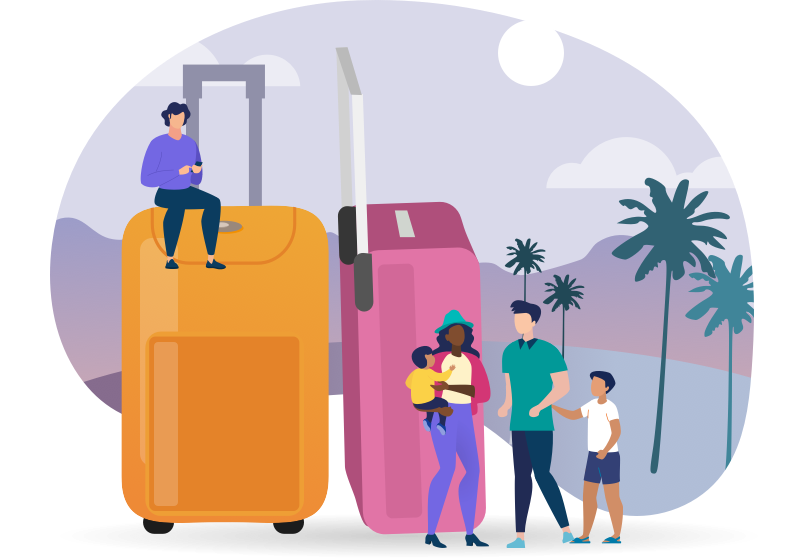
- SwiftScore Our SwiftScore is a unique and proprietary insurance ranking system objectively comparing key metrics which are most important to Cuba travelers. Learn more at the end of this page.
STARTING PRICE FOR 2-WEEK TRIP TO THE CUBA
CAN YOU CANCEL YOUR TRIP FOR ANY REASON?
BEST WEBSITE FOR
Comparing Policies
- Compare dozens of the best Cuba travel insurance policies from all the major providers in one place
- Easily filter for the features you want and get support from their award-winning customer service team
- Founded in 2013, TravelInsurance.com has helped hundreds of thousands of travelers find affordable insurance coverage

- SwiftScore Our SwiftScore is a unique and proprietary insurance ranking system objectively comparing key metrics which are most important to travelers. Learn more at the end of this page.
BEST POLICY FOR
Travelers Aged 55+
- Pre-existing medical conditions are covered for a reasonable fee and they offer “cancel for any reason” as an add-on
- $2,000 COVID quarantine coverage available w/ Safe Travels Voyager plan
- Founded in 1998 and underwritten by Nationwide and GBG Insurance

BEST WEBSITE FOR
Filtering Plans
- This comparison website has the most comprehensive filters especially for Covid-19 which helps you search for the specific benefits you need
- They have “Zero Complaint Guarantee” which promises a fair claims process
- Established in 2003, Squaremouth has consistently been recognized for it’s exceptional customer service

BEST POLICY FROM
An Established Brand
- Well rounded, inexpensive travel insurance plans from an established and top rated global insurance company
- AXA has plans that cover pre-existing conditions and their “Platinum” plan covers “cancel for any reason” with an optional add-on. They also offer helpful 24/7 Worldwide Travel Assistance Services
- Founded in 1959 and underwritten by Nationwide

Adventure Travel
- Covers almost all adventure activities for a reasonable price for U.S. residents up to age 70 (worldwide up to age 65)
- Can insure up to 9 people in one family and the signup process is super easy
- Founded in 2002 and underwritten for U.S. travelers by Nationwide Insurance

Family Travel
- Their “Trip Interruption for any Reason” feature allows you to get a 75% reimbursement for any additional expenses if you decide to go home early from your trip
- They have a variety of insurance products to suit any travel needs
- Founded in 1993 and underwritten by Nationwide Insurance

Long-term Travel
- Ideal for digital nomads and long-term travel, available to anyone anywhere
- Scored lower because short-term travel coverage isn’t as robust as competitors
- Founded in 2018 and is underwritten by Lloyds of London

CAN YOU CANCEL YOUR TRIP FOR ANY REASON?
- Compare dozens of travel insurance policies from all the major providers in one place
Cuba travel insurance FAQs
What are the most important things to look for in a cuba travel insurance plan.
Always make sure that your travel insurance provider includes Cuba in their coverage. Depending on world events, insurers may exclude a handful of countries from policies at any given time. Also, make sure that any policy you choose covers you from your departure date through the return date. And with so many uncertainties remaining around travel, you may want to get a “Cancel for Any Reason” (CFAR) optional package. It would allow you to do just as it says and guarantee you reimbursement for 75% of your trip costs. Lastly, you must decide whether you want to participate in adventure sports and activities in Cuba. Since Cuba has everything from scuba diving and swimming with dolphins to hiking and horseback riding, you should get a policy that covers such activities. In my experience, the comparison website SquareMouth.com has the best filter options, allowing you to see policies that cover you for your preferred sports and activities.
Can I buy Cuba trip insurance after my vacation has started?
It’s always a good idea to purchase Cuba trip insurance before leaving home, but you can always buy a policy once your vacation has begun. However, be aware that your plan will only be valid from the date of purchase. In other words, it will not cover anything that happened to you, your travel plans, or your possessions before the date of purchase.
Is “Cancel for Any Reason” coverage worth it?
Most travel insurance companies have optional Cancel for Any Reason (CFAR) insurance packages you can add to your standard policy. It’s an excellent choice for people who want that extra peace of mind, knowing that they can cancel their trip for reasons not covered by their policy, such as changing their minds at the last minute and still getting reimbursed 75% of their total trip costs.
How long will my Cuba travel insurance policy be valid for?
It depends on whether you purchase a Single Trip, Annual or International Medical policy. Single-trip travel insurance plans will cover you door-to-door, meaning from the time you leave home on vacation until you return home. These plans usually come with trip cancellation benefits. However, plans without those particular benefits are known as International Medical policies. With these, cover usually lasts a year and is sometimes renewable for up to 3 years. Annual plans extend coverage to multiple trips within a given year for any medical or evacuation services you may need.
Is Cuba safe to visit?
While many people vacation in Cuba without experiencing any trouble, it’s always wise to consult the US Department of State’s Cuba Travel Advisory page for the most current guidance and information.
How do travel insurance companies define “total trip cost”? #21
Your insurers determine your policy’s benefits for Trip Interruption and Trip Cancellation based on your total trip cost. To figure out your total trip cost, add up the full cost of nonrefundable, prepaid expenses. These include airfare, hotels, ground transportation, cruise fares, retreats, event tickets as well as fees for lessons and activities. You must include everything you prepaid but wouldn’t get a 100% refund for should you cancel your trip. Also, always factor in cancellation penalties you would have to pay in your total trip cost. This is true even for those things that do not require prepayment. When submitting your total trip cost to your travel insurance provider, round it up to the nearest dollar (not down). Do not submit a value lower than your actual trip costs to get a cheaper policy. Miscalculating the total trip cost or submitting the wrong total to your insurer could render you ineligible for the benefits listed in your policy.
How is baggage loss defined, and what does that benefit cover?
Trip insurance companies define baggage loss as your baggage or personal effects getting lost, stolen or damaged while traveling. Regardless if your bags are in the care of a hotel, travel supplier or common carrier, your insurer will reimburse you for such losses. Of course, they will do so up to the Maximum Benefit Amount listed in your policy, minus whatever the responsible party reimburses you. Understanding baggage loss benefits and reimbursements can be tricky, so let’s walk through them. First, it’s essential to note that the Maximum Benefit Limit in your policy is applied on a per-person basis. Therefore, if your Maximum Benefit is $2,500, but you have 3 other people insured on your policy, they each get a $2,500 Maximum Benefit for baggage loss. Next is the Per Article Benefit, which can be applied until you reach your policy’s Maximum Benefit Limit. The Per Article Benefit is the highest amount your insurer will reimburse you for each item. Another aspect of baggage loss benefits is the Combined Article Limit, which pertains to items such as watches, jewelry, electronic devices (laptops, smartphones, cameras, video cameras, etc.) and furs. Should you lose one or more of the items mentioned above (or they get stolen or damaged), this is the most your insurer will reimburse you for all of them combined, regardless of each item’s value. (Note: Not all policies will have Combined Article Limits, as this depends on your state of residence.) Imagine that you have a policy with a $2,500 Maximum Benefit, a $300 Per Article Benefit and a Combined Article Limit of $1,000. Should your baggage get lost, stolen or damaged, your trip insurance provider will reimburse you up to $300 per item based on each item’s actual value, but in total cannot exceed your $2,500 Maximum Benefit. For items that get classified under the Combined Article Limit, the most you can get from your insurer is $1,000, regardless of whether the item’s (or items’) value(s) exceed(s) that amount. Therefore, if you lose a laptop, its current value is $1,200. Your reimbursement would be capped at $1,000. It’s worth mentioning that getting reimbursed in such instances requires sufficient documentation to establish ownership and loss. Photographs of the belongings you brought to Cuba and their receipts are perfect for the former. Letters from responsible parties and police reports should be sufficient for the latter. Always review the full details of any policy you are interested in before purchasing it.
Can I get travel insurance through my credit card company?
Credit card companies often offer their cardholders something called “travel protection,” but it is not the same as travel insurance. First, any benefits will be limited to whichever aspects of your trip you purchase with that specific credit card, such as hotels, flights and rental cars. Be aware that almost no credit card companies provide emergency medical and evacuation coverage, and their overall benefits are usually far less robust than those of policies offered by companies that specialize in travel insurance.
Typical problems tourists may experience while traveling in Cuba and how to avoid them:
Most of the illnesses tourists experience in Cuba are from mosquitoes. The risks rise significantly during the rainy season, between May and October. That said, it’s important to note that mosquitoes are an issue year-round due to consistently hot and humid weather. The two most common mosquito-borne illnesses are dengue fever and Zika. Symptoms of Zika include fever, headache, conjunctivitis and rashes. It poses the most significant risk to pregnant women, as it can cause miscarriage. However, most people who contract Zika show no symptoms. On the other hand, dengue fever can leave you bedridden or dead if you do not get the proper care. With dengue, your blood platelet count drops extremely low, so hemorrhaging can occur. Symptoms to watch out for are fatigue, extreme body aches, sweating, vomiting, fever and rashes. Should you experience any, all or a combination of these symptoms, get to a hospital as soon as possible. Being under medical supervision and getting fluids intravenously will be key to your recovery. Regaining your health can take up to 8 weeks, so be patient with the process and ensure you have comprehensive travel insurance to help cover your medical costs. You can minimize your risk of contracting both by using a strong bug spray all over your body, including the tops and bottoms of your feet, especially when you’re not wearing closed shoes. Also, be mindful of staying hydrated. Avoid being out in the mid-afternoon sun and drinking too many caffeinated and alcoholic drinks. Instead, eat plenty of hydrating foods like fruits and vegetables and drink enough water. Do not drink tap water in Cuba. Stick with bottled water. Also, avoid drinks in restaurants with ice, as they generally use tap water to make the ice. You will see locals drinking tap water, but their bodies are used to the bacteria in it and therefore do not have the same adverse reactions that tourists may have. Tap water in Cuba also runs the risk of being contaminated by old pipes, poor sanitation and more.
The most typical injuries that tourists in Cuba suffer are twisted or broken ankles, wrists and arms as well as scrapes from tripping and falling. Other accidents visitors have usually result from outdoor sports, such as cycling and hiking. Even though the roads in Cuba are relatively empty, they are littered with potholes, which can quickly cause you to crash if you’re not paying attention.
Pickpocketing happens in Cuba, particularly in crowded areas that appeal to tourists. Bag snatching is less common, but it still happens occasionally. If you flash money around, wear expensive jewelry or keep your electronics visible, you put a target on your back. See the Safety section below for more information.
Emergency resources for Cuba
Phone numbers.
Dial 106 from any local phone to reach the police, 104 for ambulance services and 105 for the fire department. It’s worth mentioning that people working the dispatch lines rarely speak much English. Therefore, arm yourself with some relevant Spanish vocabulary in advance.
US embassy or consulate details
The United States has an embassy in the Cuban capital of Havana. If you need the Embassy’s address, phone number, opening hours or information regarding citizen services, check out the website . If you want to take an extra safety measure before your vacation in Cuba, register your travel itinerary with the State Department’s Smart Traveler Enrollment Program . Once listed with STEP, you will receive Cuba safety alerts pertaining to your travel dates. Additionally, registration helps the US Embassy in Havana communicate with you and your family in an emergency.
Other local knowledge that is helpful for travelers
Accommodations.
Regarding accommodations in Cuba, you will have a wide selection from which to choose, including international chain hotels, hostales, Cuban chain hotels, casas particulares, campismos, national-peso hotels and vacation rentals. For those who want the best customer service, stay at the higher-end foreign hotels. You will have all the creature comforts you’re used to, including room service, and be cared for by an attentive staff. In terms of other large hotels, there are 5 locally-owned chains, but they aren’t all equal in quality. Cubanacán (including Encanto hotels), Habaguanex and Gran Caribe hotels will be the best locally-owned chains. Unfortunately, due to US government restrictions, US citizens cannot legally stay in state-run hotels. However, if you want to experience Cuban culture, casas particulares are the way to go. The closest equivalent of casas particulares in the United States is bed and breakfasts or inns. While a select few casas feel like small boutique hotels, most are formalized versions of homestays, and they are much more affordable than chain hotels. Sometimes, it may not be obvious where the closest casa is, so if a street vendor stops you, offering cigars or other goods, decline their wares but ask them if they know of any casas particulares. Most are more than happy to take you to one at no charge. Of course, the casa will pay them a commission directly, but you’re always welcome to give them a $1-2 tip if you wish. And your current host can recommend a casa in the next town or city you plan to visit next. With casas, you can expect similar rates across the board but only settle on a price once you have seen the room being offered. All casas only accept cash payments. You’ll pay only a fraction of the standard high-season rate during the low season. Websites like MS Casa Particular Cuba and CasasParticulares.net are two resources for finding casas nationwide. Note that casas with orange insignias near their front doors only cater to Cubans, while those with blue insignias are open to foreigners. If you prefer the atmosphere of a boutique hotel, hostales are the right choice for you. They are the best choice outside Havana, mainly if you stay in provincial cities and larger towns. You will get good service and quality for what you pay, and you will often get to stay in stunning neoclassical buildings, but do not expect upmarket luxury. Even though national-peso hotels are the cheapest accommodations available in Cuba, they are not necessarily recommended. You will likely find them in disrepair, including broken furniture, torn sheets and unpleasant bathrooms. If you want more adventurous and affordable accommodations, campismos may be just what you want. Campismos are small, basic, concrete cabins near beaches and rivers. They either come with a barbecue area or the grounds have a small canteen for all guests. Keep in mind that Cubans always get priority for reservations, especially during June and July holidays. It is worth noting that no accommodations grant you access to a kitchen beside the entire apartment/house short-term rentals you book via Airbnb. This can pose a challenge to those traveling with children or who have specific diets. Just be aware that Airbnbs may not be available in every town or city you plan to visit. Also worth mentioning is that the Airbnb app does not work in Cuba. You will have to communicate with your hosts via the website and email. If you struggle to access the website, try quitting your browser, connecting to the internet using a VPN and visiting Airbnb’s site.
Adventure Activities & Extreme Sports
Cuba is a stunning country with an exquisite landscape, making it perfect for many outdoor adventure sports and activities. Biking, kayaking, exploring and diving in caves, scuba diving, horseback riding, fishing, hiking, snorkeling, taking nature walks to identify birds, flora and fauna, and swimming in waterfall pools are all popular activities among tourists. Diving seems to be the country’s standout sport since Cuba’s waters are crystal clear and unpolluted. The water is also warm and the coral reef and aquatic life is vibrant and aplenty. And there’s no shortage of shipwrecks to checkout. Cuba attracts excellent international talent when it comes to dive masters, and the country’s 25 diving centers have safe gear, even if it’s not the newest. Marlin Naútica y Marinas run most centers. If you aren’t a PADI-certified diver, most dive centers offer certification courses for as little as a few hundred dollars. While there are professional tour agencies that organize such excursions outside of Cuba, many private individuals offer outdoor guide services. (Yes! It’s legal.) Most operate out of casas particulares, so be sure to ask your host to help you plan some activities for your stay. You can generally access decent gear rentals in Cuba. However, if you decide to bring your own from home but don’t want to carry it back with you, consider donating them. Your gift will be met with immense appreciation.
Communication
Keeping in touch with friends, family and colleagues back in the United States, while you’re in Cuba, is rather straightforward, just as it is if you were traveling to other countries. US-based mobile phone carriers such as Verizon, T-Mobile, AT&T and Sprint offer international roaming plans for Cuba. The only significant difference between roaming plans for Cuba and most other countries is that data roaming in Cuba costs a small fortune. You can pay as much as $2 per MB (not GB!). Stick to a calling and texting plan only. Reception is usually quite good throughout most of the country, save for a few remote corners. The upshot is that you can access the internet via WiFi hotspots across Cuba. Sure, the internet speed may not be what you’re used to, but you will be able to get online and do whatever you need. You may find that your hotel or vacation rental has WiFi, but you’ll also find that many public spaces offer access, including public squares, restaurants, cafes, shopping malls and more. You’ll know when WiFi is available because you’ll stumble upon a mass of people staring at their devices, which is not necessarily a common sight in Cuba. Another route you could take is to get a SIM card once you arrive. It will be much more affordable than adding an international roaming plan with your mobile phone company in the US. However, if you choose to get a local SIM, you must ensure your phone is unlocked before leaving the States. If unsure, check with the company you pay for phone service. The SIM card options at the airport are limited, especially for those needing data plans. You’ll get better deals by visiting a local mobile service provider’s store. Cubacel (website only in Spanish) and C-com are the only two mobile carriers in Cuba. If you’re uncertain where to find one of their retail locations, ask your hotel concierge or vacation rental host. Keep in mind that many websites, including those requiring payment processing via US-based banks, are often not accessible in Cuba due to the US sanctions/embargo and censorship. However, you can get around these virtual blockades using a VPN (Virtual Private Network) service. Most VPN services range from $5-15 per month.
The national currency, the Cuban peso (CUP), is only available in the country. Therefore, you must exchange your US dollars for Cuban pesos once you arrive in Cuba. Unlike when you visit other countries, bringing all the cash you need for your trip is essential, especially as Cuban banks can often have very long lines and are only open from 9 am to 3pm, ATMs can be difficult to locate and the exchange rate can be highly unfavorable. Bring mostly $100 bills, as many money changers rarely accept smaller foreign bills. You will want to bring plenty of bills in smaller denominations for giving as tips. (More on this in the Tipping section below.) Avoid changing your dollars at the airport or CADECA money exchange locations. You can lose up to four times the amount you would get elsewhere. Check with your hotel’s concierge or front desk staff for advice on where you can get the best exchange rate. Businesses in Cuba do not accept credit and debit cards issued by American banks. If you’re from a country other than the US, remember that nearly no private businesses have credit card processing machines. Cuba is a cash-based economy. However, state-run enterprises will accept many foreign credit and debit cards. Remember to notify your bank or credit card company of your travel dates and destination so they don’t block you from using your card while on vacation. Note: Cuba used to have two currencies: the Cuban Peso (CUP) and the Cuban Convertible Peso (CUC), but the latter was removed from circulation as of early 2022. Many businesses are slow to update their prices and menus online, so just remember that such things may be inaccurate when researching your trip.
Entertainment
Cuba is famous for its rich and electrifying music and dance scene and their sensual rhythms and moves. It’s so vibrant that it keeps locals and visitors alike grooving and partying until the sun comes up. What astonishes many tourists, though, is how unabashed and unself-conscious Cubans are when it comes to dancing. They leave it all on the dance floor, so don’t be afraid to do so as well. The national dance of Cuba is the danzón. It started as a polite,group-centric ballroom dance and evolved by the early 1900s into a sassier, fiery dance for couples. You may also hear it called charanga, danzón-chá and danzonete. Cuba is also the birthplace of the rumba, which was born out of drumming circles by formerly enslaved Africans in Matanzas and Havana. As time progressed, the drumming became more complex and vocals were added. An inevitable result is the development of a dance style with three variations: columbia, guaguancó and yambú. Jazz and salsa clubs abound in Cuba, and you can’t go far without hearing such tunes as people in public squares or basement clubs. Same is true for salsa, cha-cha-cha, mambo, trova, timba or reggaeton. Much credit is owed to the Afro-Cuban community for countless contributions to shaping this spectacular country’s music and dance culture.
Entry Requirements
Contrary to popular belief, United States citizens can travel to Cuba. You will need a few documents to enter the country:
- A copy of your travel itinerary (proof that you have a ticket out of the country).
- Proof of travel insurance (medical, including Covid-19 coverage).
- A passport with at least 6 months left before expiration.
- A tourist card and a completed D’Viajeros health and information form.
You can complete the D’Viajeros form up to 48 hours before arrival, but the earlier you do so, the better. Just visit the website , click “Request Form,” and fill it out. After you finish the several pages, submit it online. You will be required to show your airline proof of its completion at check-in or the departure gate. A printed or digital copy is acceptable, though having both in case of emergencies is advised. Cuba requires visitors from the US to obtain a tourist card, also known as La Tarjeta del Turista, to enter the country. Most airlines will not allow you to board your flight to Havana without it. Americans must get a pink tourist card and Canadians, a green. Tourist cards run anywhere from $25-85, depending on where you purchase yours. You have several options for getting your Tourist Card. To do so, you will need your passport, a completed Tourist Card application , a copy of your travel itinerary and proof of travel insurance. If you booked your trip through a travel agency, they will be the best and easiest option and can help you take care of everything. Another option is to purchase it online in advance via companies such as Easy Tourist Card . Otherwise, you can buy it from your airline at your flight’s check-in desk or departure gate. Some airlines may include the cost of the Tourist Card in the price of your plane ticket, while some may require you to pay for it separately. It’s always a good idea to confirm with your airline in advance. The last and most time-consuming option is to get it through the nearest Cuban embassy or consulate.
Food & Drink
Cuban cuisine has heavy Spanish, African, native Taíno and Caribbean influences. Heavy in pork, chicken, beef, potatoes (sweet and regular), yucca (cassava), beans, rice, carrots, onions, garlic, coconut, seafood, plantains and other fruit. You will have several types of establishments to eat at while in Cuba. First, foreign hotels and resorts have all-inclusive packages, often including breakfast and dinner buffets. However, it would be a shame to miss out on the variety Cuban cuisine offers. Therefore, avoid all-inclusive packages. An alternative is state-run restaurants. These will be the cheapest of all your dining-out choices. Quality and service span a wide range. In the provinces, you may have limited selections, lower quality food and rations. However, many state-run restaurants in Havana sell delicious food and provide great service. The next best choice is private restaurants, also known as paladares. While these are more expensive than state-run restaurants, you’re guaranteed meals made from fresher, higher quality ingredients and significantly better service. Food ranges from comfort food to high-end fusion cuisine. The most interesting option, but not always available, is dinner at whichever casa particular (see the Accommodation section) you may be staying. Breakfast and dinner usually come at an extra charge. Most travelers who have the privilege of getting a home-cooked dinner at a casa will rave about it for years to come – yes, it’s that delicious! However, keep in mind that breakfasts are usually simple: eggs, fruit and toast. It’s worth asking your host, though, as all meals vary from casa to casa. Ropa vieja is easily one of the most popular dishes in Cuba. It’s made of shredded beef stewed in a tomato sauce, onions, garlic, bell peppers, cumin, and red wine. They typically serve it with rice, avocado, and tostones (pressed and fried plantains) or maduros (sweet plantains). In fact, ropa vieja means old clothes in English—an appropriate name given the appearance of shredded beef. Another is vaca frita, which translates as ‘fried cow.’ It’s a dish of beef strips marinated in garlic, salt and lime, then fried. As it’s frying, some cooks add bay leaves, cumin or oregano and then serve it with black beans and white rice. Fricasé de pollo is probably the most well-liked chicken dish in Cuba. It’s chicken stewed in a tomato and red wine-based sauce with peas, potatoes, olives, capers, bell peppers, garlic, onions, lime juice and spices. Of course, a trip to Cuba would not be complete without trying at least one or two of the country’s mouth-watering fish or seafood dishes. Pecado con leche de coco is fish sauteed in a tomato and coconut milk sauce with garlic and spices. Lobster, shrimp and other seafood will often take the place of fish. Lastly, you must try a medianoche, which literally means midnight in Spanish. It got its name because clubs serve it as a late-night snack or meal. The medianoche resembles the famous Cuban sandwich (el cubano) that working-class Cuban immigrants in the United States made famous. It comes with ham, roasted pork, Swiss cheese, pickles and mustard, and they serve it on sweet egg bread instead of the traditional crispy, baguette-like Cuban bread. For the gourmet capital of Cuba, head to Baracoa in the southeastern corner of the country. You will find incredibly delicious fish and seafood dishes and a variety of fruits and vegetables. Be aware that due to a struggling economy and currency (high inflation), shortages are a normal part of everyday life in Cuba. As a result, people eat what is available and what they can afford, not necessarily what they want. This may make it difficult for those with strict dietary requirements, such as vegan, vegetarian and, to a lesser extent, gluten-free. That said, you will find plenty of street cart vendors selling fresh fruits and vegetables wherever you go.
Getting Around
Getting around Cuba is not as smooth and straightforward as it may first seem. Since trains in Cuba are slow, infrequent and generally uncomfortable, and domestic flights are unreliable, the simplest way to travel between provinces is by bus. Buses are safe and clean. Your best bet will be Víazul if you want air-conditioning. Always buy your tickets directly at your nearest bus station at least 2-4 hours in advance, and 2-3 days in advance during high seasons if you want to guarantee your reservation since the online booking system can sometimes be questionable. The next option will be taxis. You can book these for full-day tours, not only one-way trips. The most popular choice among tourists is the almendrones, the classic American cars, and the other is the yellow taxis, which private drivers or state-controlled agencies operate. Both have comparable rates, but take a coco-taxi if you want to get around Havana. These are yellow, motorized tricycle cars, more modern versions of Southeast Asia’s auto rickshaws (tuk-tuks). With Cuba having such low car ownership and gas shortages being the norm off-and-on for several decades, cycling has been a preferred mode of transportation. Most roads have bike lanes to the right of car lanes, and since potholes abound, poncheras (bike tire repair stalls) exist across the country. The great news is that you can cycle all over Cuba without fear of battling for space on the road with tons of cars. Companies like Bicycle Breeze , Cubyke and Vélo Cuba (website in Spanish) are reliable. Rental cars are pricey in Cuba, and with the roads in such rough shape, it’s not the ideal mode of transportation despite the roads being relatively empty. Daily rates tend to start around US $80, and you will have to pay $175 (or higher) ‘guarantee deposit.’ This deposit is refundable if you return the car without damage or tickets. Should you wish to pick up your rental at the airport, expect to pay an extra airport pick-up fee. Since most rental car agencies are government-run, Americans may find it difficult to rent a car using a credit or debit card linked to a US bank. Therefore, organizing your car rental and other adventures around Cuba with a travel agency is a good idea. Wherever you are in Cuba, you will notice that local buses abound. They are very cheap to ride, but be aware that many Cubans do not want tourists onboard. Therefore, if you show up at a bus station, depot or stop, don’t be surprised if locals pretend that the buses aren’t running. For the sake of all, you are better off taking a taxi.
The national language of Cuba is Spanish, with words from some West African languages tossed in for good measure. It’s often called español cubano or cubañol. Cubans speak extra fast, so even those non-native speakers with a trained ear for Spanish will take some time to get used to it. For those who speak Spanish, it’s essential to know that Cubans often use the informal tú form of verbs instead of the formal usted, even if they don’t know you. However, using the usted form is best unless a local tells you it’s unnecessary. You can also address a man you don’t know as señor or a woman you don’t know as señora. Here are some useful Spanish words and phrases to help you through your travels:
- hello – hola
- goodbye – adiós or chao (pronounced chow)
- good morning – buenos días
- good afternoon/evening – buenas tardes
- good night – buenas noches
- see you later – hasta luego
- How are you? – ¿Qué tal? or ¿Cómo estás?
- good/fine – bien
- very good – muy bien
- so-so – así así
- please – por favor
- thank you – gracias
- thank you very much – muchas gracias
- you’re welcome – de nada
- sorry – lo siento
- excuse me – perdon
- I don’t understand. – Yo no entiendo.
- Do you speak English? – ¿Habla inglés, senor/a?
- Where is the ______? – ¿Dónde está ______ ?
- post office – oficina de correos
- ticket office – la taquilla
- airport – aeropuerto
- bus station – la estación de autobús
- bus stop – la parada de autobús
- gas station – gasolinera
- train station – la estación de trén/ferrocarril
- bathroom – los servicios or el baño
- men – los caballeros (cowboys)
- women – las mujeres (pronounced moo-hey-rez)
- left – la izquierda (eez-kee-air-da)
- right – la derecha
- next to – al lado de
- opposite/across from – frente a
- in front of – enfrente de
- behind – detrás de
- on/at the corner – en la esquina
- near/close to – cerca (de)
- far from – lejos (de) (lay-hoz)
- I would like a room, please. – ¿Quisiera una habitación? (kee-see-ay-rah
- oo-na aw-bee-tas-ee-on)
- air conditioner – aire acondicionado
- Single room – una habitación individual
- double room – una habitación doble
- car – un coche
- truck – camion
- helmet – casco
Local Customs & Etiquette
Cuba is a relatively easy country to adjust to regarding etiquette since the people tend to be informal and laid back. Shorts, skirts (of a reasonable length), light pants, t-shirts, and tank tops are acceptable, but save bikini tops or provocative clothes for the beach. Dress appropriately for the weather and not too flashy, and you will avoid sticking out like a sore thumb. Despite the communist state declaring Cuba an atheistic country, the citizens still treat churches as places of worship and respect them accordingly. Therefore, dress for the occasion: no shorts, short skirts, tank tops or sandals. All shirts must cover your shoulders, and skirts and pants must fall below the knee. Also, be aware that topless or nude sunbathing is illegal. When greeting Cubans you do not know, shaking hands is appropriate. However, if you have friends in Cuba, feel free to greet them with a kiss on each cheek (appropriate between women and men and women). Men familiar with each other will still shake hands or hug one another. Only discuss politics with locals if they bring it up on their own. The Communist Party has ruled Cuba since the Revolution in 1959. Cubans have endured a great deal of hardship, including food shortages, rationing, and minimal or no access to news and information beyond the country’s borders. As a result, they do not necessarily welcome complaints from visitors about challenges or problems they may be having with their vacation.
Cuba is a very safe country to visit. It has one of the lowest violent crime rates in the Americas. That said, always take common sense precautions in public, especially in desolate urban areas and at night. Lock all your valuables in your hotel room safe, do not wear expensive watches or jewelry in public and carry all cash in a money belt or a chest purse/bag. These steps will ward off pickpockets and help you keep track of your things in busy, crowded places. Another thing to be aware of is that changing your cash with money changers on the street means you risk getting forged notes.
With the opening up of Cuba over the years, the country has developed a strong tipping culture. Expect to tip hotel, cafe, bar and restaurant staff, tour guides and other employees in tourist-centric businesses. Workers depend heavily on tips to make a livable wage, as they usually get paid very little. US dollars are in high demand in Cuba, and it is standard practice to tip in dollars. As mentioned in the currency section, bring plenty of $1 and $5 bills from the US. Of course, do not tip all workers the same. In restaurants, you may see a 5% service charge tacked onto your bill. However, leaving a 10% tip cash tip is still common. The same goes for bartenders. However, if you’re staying at an all-inclusive resort, tip $1 for every 2-3 drinks. In hotels, tip the housekeepers $2-5/night and the bellhops $1-2/bag at check-in and check-out, but a minimum of $3. $1-2 should do for parking valets. For spa technicians, 10-15% is the norm. Unlike in the United States, it’s standard in Cuba, even among locals, to tip shopkeepers and cashiers. You do so by simply rounding up your purchase to the nearest dollar. Just tell the cashier to keep the change. You will also find that most bathrooms have attendants. Most bathrooms require you to pay a fee, and tipping the attendant $0.25-0.50 is appropriate. There are a host of other people you should tip while on vacation in Cuba. The first is tax drivers. $1-3 should suffice for shorter trips, but feel free to tip more if they help you with luggage, provide recommendations, or give you walking directions. Tip street artists and musicians anywhere from $1-2. For outdoor activity and private tour guides, $5-10 per person is the norm. Bus tour guides should get $3-5 per person and the tour bus drivers $2-3 per person. Free walking tour guides volunteer their time, so they should receive a much higher tip of $10-20/per person for a 2-hour tour or more if it’s longer. Museum docents are used to getting $1-2 per person. While this is just a guide to help you, feel free to tip more or less as you see fit. By tipping hotel staff well upon arrival, you will receive much better service than you would if you tipped normally. In Cuba, the high tip usually precedes excellent service.
A final note about travel insurance for the Cuba
I have spent dozens of hours researching travel insurance, including getting quotes and comparing coverage from all the most popular brands. Regardless of where you’re going I am confident that you will also find that TravelInsurance.com offers the best way to compare policies with the ideal combo of coverage and price.
I wish you and yours an incredible journey.
SwiftScore Ranking Methodology
- Average price for a 2-week vacation based on a 35-year-old California resident traveling to the Cuba with a $3,500 trip cost
- Coronavirus coverage
- Cancel for any reason (CFAR)
- AM Best rating of the underwriter
- Key policy details including cancellation, interruption, emergency medical evacuation, and baggage & personal effects
- Ease of sign up
- Policy language clarity
- User reviews

Travelling to Cuba: take proof of health insurance!
Since May 1, 2010, all travellers to Cuba have been required to carry proof that they hold travel insurance covering medical costs during their stay.
When arriving, travellers must provide, upon request, their insurance policy, their insurance certificate or their health insurance card. In special cases, those who do not meet this criterion can take out travel health insurance on the spot.
Although the Cuban Tourist Board says the Quebec health insurance card is adequate proof of coverage, CAA-Quebec recommends – as with any trip – taking out private health insurance, because Quebec’s health insurance board (RAMQ) does not cover all medical costs.
To avoid having two insurance policies providing the same coverage, CAA Quebec also urges travellers to Cuba who hold group insurance to check with their insurer to find out whether they already benefit from coverage.
All health insurance policies are recognized by the Cuban authorities, except those issued by U.S. insurance companies.
According to Canada’s Department of Foreign Affairs and International Trade, the Cuban authorities do not allow anyone with unpaid medical bills to leave the country.
For further information:
- Canadian Department of Foreign Affairs and International Trade
CAA-Quebec Travel Insurance. It’s more than just insurance coverage.
- You get peace of mind with health coverage that’s reliable.
- Your travel budget is safe, thanks to comprehensive trip cancellation or interruption coverage.
- You benefit from a personalized, affordable premium.
And with assistance services, our Travel Insurance is an indispensable ally, right there with you 24/7, anywhere in the world. There to help you efficiently settle a problem, large or small, but also to help you enjoy your trip to the fullest!
Buy it online
- Skip to main content
- Skip to "About this site"
Language selection
Search travel.gc.ca.
Help us to improve our website. Take our survey !
COVID-19: travel health notice for all travellers
Cuba travel advice
Latest updates: The Need help? section was updated.
Last updated: May 31, 2024 09:42 ET
On this page
Safety and security, entry and exit requirements, laws and culture, natural disasters and climate, cuba - exercise a high degree of caution.
Exercise a high degree of caution in Cuba due to shortages of basic necessities including food, medicine and fuel.
Resort areas - Take normal security precautions
- Cayo Largo del Sur
- Cayo Santa Maria
- Guardalavaca
Back to top
Petty crime
Petty crime, such as pickpocketing and purse snatching, occurs.
Theft generally occurs in crowded places such as:
- tourist areas
- public buses
- night clubs
It can also occur in isolated areas.
Theft from hotel rooms, particularly in private accommodations ( casas particulares ), and from cars is common.
- Ensure that your personal belongings, including your passport and other travel documents, are secure at all times
- Don’t pack valuables in your checked luggage
- Avoid showing signs of affluence
- Keep electronic devices out of sight
- Carry valid identification at all times
- Keep a digital and a hard copy of your ID and travel documents
- Avoid carrying large amounts of cash
- Never leave belongings unattended in a vehicle, even in the trunk
Violent crime
Incidents of violent crime are not frequent, but assaults may occur. They mainly occur during a burglary or robbery.
- Stay in accommodations with good security
- Keep your windows and doors locked at all times
- If threatened by robbers, don't resist
Credit card and ATM fraud may occur.
Be cautious when using debit or credit cards:
- pay careful attention when your cards are being handled by others
- use ATMs located in well-lit public areas or inside a bank or business
- avoid using card readers with an irregular or unusual feature
- cover the keypad with one hand when entering your PIN
- check for any unauthorized transactions on your account statements
Some businesses may try to charge exorbitant prices, namely taxis and classic car rentals. Disputes about overcharging may lead to violence.
- Always confirm prices before consuming or taking up a service
- Avoid running a tab
- Avoid leaving your credit card with bar or restaurant staff
- Check your bill to make sure it’s exact
Some hustlers specialize in defrauding tourists. Most of them speak some English or French and go out of their way to appear friendly. They may offer to serve as tour guides or to facilitate the purchase of cigars. Some have used violence in their efforts to steal tourists.
Fraudulent tour agents and taxi drivers also operate throughout the country, including at Havana’s international airport. Thefts of luggage from taxi trunks have occurred.
In bars, sex workers, including minors, may be very persistent and intrusive with tourists who refuse their advances. Foreigners, including Canadians, have been the victim of theft after engaging in sexual relations, and some of them have faced child sex accusations.
- Use reputable tour operators and registered taxis only
- Avoid independent street vendors
- Be wary of strangers who seem too friendly
Overseas fraud
Cuba faces chronic and severe shortages of basic necessities, including:
- bottled water
- public water supply
- hard-currency
Fuel shortages are currently critical and affect a wide range of services. Travelling across the island is extremely challenging. Public transportation services, including taxis, are often disrupted, leaving tourists with few options to travel. Some travellers have been temporarily stranded with a rental car. Intermittent shortages of tap water provided by municipalities happen, including in Havana and in resorts.
Hotels and resorts, that often use generators during power outages, may not be able to maintain their services. Fuel shortages may also affect government services.
Local authorities enforce the rationing of food and medications, which could also affect travellers.
Shortages may lead to disruptions to other essential services. There are often long line-ups at gas stations that have led to altercations.
- Plan accordingly
- Bring some basic necessities with you such as toiletries and medication
- Keep a supply of water, food and fuel on hand
- Make sure you always have access to a complete emergency kit
Power outages
Power outages occur regularly outside of Havana and touristic areas.
Obtaining services during an outage is challenging.
Women’s safety
Women travelling alone may be subject to some forms of sexual harassment
Incidents of sexual assault against Canadian women have occurred, including at beach resorts.
If you’re the victim of a sexual assault, you should report it immediately to the nearest Canadian consulate or embassy and seek medical assistance. You should also report the incident to Cuban authorities and ensure that local police provide you with a Comprobante de Denuncia. This document confirms that a report has been filed.
A criminal investigation will likely not be possible if no formal complaint is made to Cuban authorities before you depart the country.
Police officers may speak only Spanish.
Advice for women travellers
Spiked food and drinks
Snacks, beverages, gum and cigarettes may contain drugs that could put you at risk of sexual assault and robbery.
- Be wary of accepting these items from new acquaintances
- Never leave food or drinks unattended or in the care of strangers
Telecommunications
The telecommunications network in Cuba is poor. Connections are unreliable and may be intermittent.
Some Canadian cell phones may not work, even in large cities. Internet access is limited across the island.
Local authorities control telecommunications. They may block access to mobile phone and Internet in case of civil unrest or before demonstrations.
- Don’t rely on your mobile phone for emergencies, especially outside major cities
- Subscribe to and install a VPN service before leaving Canada
- Avoid travelling alone
- Inform a family member or friend of your itinerary
Online transactions
Online banking or shopping may be challenging in Cuba, if at all possible. Most Cuban websites are unsecure. Many are inaccessible.
Some travellers, who bought their travel package online on a travel website in Canada, found out on arrival in Cuba that their hotel received no reservation or payment.
- Avoid online shopping
- Check with the hotel if they accept online reservations and payments if you plan to book online
Demonstrations
Demonstrations sometimes occur, even if taking part in them may be illegal. Local authorities will break up political demonstrations or gatherings not sanctioned by the government. They may also block access to the Internet, including social media, without notice.
Even peaceful demonstrations can turn violent at any time. They can also lead to disruptions to traffic, public transportation.
- Don’t participate in demonstrations
- Avoid areas where demonstrations and large gatherings are taking place
- Follow the instructions of local authorities
- Monitor local media for information on ongoing demonstrations
Mass gatherings (large-scale events)
Water activities
Rescue services may not be consistent with international standards. Tidal changes can cause powerful currents, and riptides are common. Not all beaches have lifeguards or warning flags to warn of hazardous conditions.
- Never swim alone or after hours
- Don’t swim outside marked areas
- Monitor weather warnings
- Avoid visiting beaches or coastal areas during periods of severe weather warnings
- Don’t dive into unknown water, as hidden rocks or shallow depths can cause serious injury or death
- Consult residents and tour operators for information on possible hazards and safe swimming areas
Tour operators and diving centres may not adhere to international standards.
If you undertake adventure sports, such as diving:
- choose a reputable company that has insurance
- ensure that your travel insurance covers the recreational activities you choose
- don’t use the equipment if you have any doubts about its safety
Recreational boating
If you are planning to go boating:
- know the navigation rules
- make sure life jackets are available for all passengers
- follow safe practices for all water activities such as jet-skiing, water-skiing or fishing
- don’t overload your boat capacity
- carry a VHF marine radio that will generate your position in case of emergency
- be prepared for emergencies
Water safety abroad
Road safety
Road safety standards are poor throughout the country. Accidents causing fatalities are common.
Road conditions
Road conditions are poor throughout the island, with the exception of the Central Highway, which runs west to east across the country. Driving may be dangerous due to:
- poorly maintained roads
- lack of signage
- Inadequate lighting
- roaming livestock
- horse-drawn carts
- pedestrians
- slow-moving traffic
Most Cuban cars are old and in poor condition. They often lack standard safety equipment. Some cars and most bicycles don’t have functioning lights.
Driving habits
Some drivers don’t respect traffic laws. Many of them, driving an electric vehicle for which licence and registration are not required, are inexperienced and unqualified. Drinking and driving is also common.
If you choose to drive in Cuba:
- do so defensively at all times
- avoid travelling at night
- travel in groups when possible
- never pick up hitchhikers, who have been known to assault drivers
Public transportation
City buses are scarce, overcrowded and poorly maintained. Bus service is not reliable.
Incidents of pickpocketing are frequent.
Tour companies offer good bus service between airports and the all-inclusive resorts. Buses used for organized day trips from hotels are usually in good condition.
Official taxis are generally reliable.
Old-model private vehicles offered as taxis are not equipped with standard safety features. They have no insurance coverage for passengers in case of an accident.
- Use only registered taxis
- Avoid flagging a taxi down on the street
- Never share a taxi with strangers
- Agree on a fare before departure, as taxis are not equipped with meters
The rail network is comprehensive, connecting most of the island, but it’s unreliable and slow. Train service is limited to Cuban nationals only.
Health incidents
The Government of Canada continues to investigate the potential causes of unexplained health incidents reported by some Canadian diplomatic staff and dependents posted to Havana.
There is no evidence that Canadian travellers to Cuba are at risk.
We do not make assessments on the compliance of foreign domestic airlines with international safety standards.
Information about foreign domestic airlines
Every country or territory decides who can enter or exit through its borders. The Government of Canada cannot intervene on your behalf if you do not meet your destination’s entry or exit requirements.
We have obtained the information on this page from the Cuban authorities. It can, however, change at any time.
Verify this information with the Foreign Representatives in Canada .
Entry requirements vary depending on the type of passport you use for travel.
Before you travel, check with your transportation company about passport requirements. Its rules on passport validity may be more stringent than the country’s entry rules.
Regular Canadian passport
Your passport must be valid for the expected duration of your stay in Cuba.
Passport for official travel
Different entry rules may apply.
Official travel
Passport with “X” gender identifier
While the Government of Canada issues passports with an “X” gender identifier, it cannot guarantee your entry or transit through other countries. You might face entry restrictions in countries that do not recognize the “X” gender identifier. Before you leave, check with the closest foreign representative for your destination.
Other travel documents
Different entry rules may apply when travelling with a temporary passport or an emergency travel document. Before you leave, check with the closest foreign representative for your destination.
Useful links
- Foreign Representatives in Canada
- Canadian passports
Tourist visa: required Family visa: required Business visa: required
Tourist card
Canadian tourists travelling to Cuba need a visa, known as tourist card. The tourist card allows you to stay in Cuba for up to 90 days. The tourist card is generally included in holiday packages provided by tour operators or airlines providing direct flights from Canada. If you go to Cuba on your own or transit via another country, you are responsible for obtaining the tourist card from a Cuban government office in Canada. You may also buy it at some airports in Canada and in the United States.
Length of stay
As a Canadian tourist, you may stay in Cuba for up to 6 months.
However, you must obtain an extension of stay if you intend to stay longer than the initial 90-day period allowed by the standard tourist card.
D’Viajeros traveller information portal – Government of Cuba
Arrival form
You must provide information on your arrival in Cuba via an online form within 72 hours before entering the country.
Once done, you will receive a QR code by email.
You must show an electronic or printed version of the QR code to authorities upon arrival.
Health insurance
You must show proof of valid health insurance to enter Cuba.
All health insurance policies are recognized in Cuba, except those issued by U.S. insurance companies. However, the Cuban immigration authorities will decide which proof of health insurance is acceptable.
Proof of health insurance may be:
- an insurance policy
- an insurance certificate
- a Canadian provincial health insurance card
If you don’t have proof of health insurance or if the proof you present doesn’t satisfy the Cuban immigration authorities, you may have to obtain health insurance from a Cuban insurance company upon arrival. This insurance may have limited coverage. Local authorities may refuse your entry to the country.
Canadian provincial health care coverage provides very limited coverage outside Canada. It won’t pay for medical bills up-front. It does not include air evacuation, and neither does Cuban health insurance.
Cuban authorities won’t let you leave the country with outstanding medical bills, which are payable by credit card only. You will need to remain in Cuba until all debts are paid.
- Make sure you purchase the best health insurance you can afford
- Ensure the insurance includes medical evacuation and hospital stays
More on Travel insurance
Other entry requirements
Customs officials will ask you to show them:
- a return or onward ticket
- proof of sufficient funds to cover your stay
- proof that you have a place to stay if arriving with “air only” tickets
Dual citizenship
If you’re both a Canadian and Cuban citizen, you must:
- present your valid Cuban passport to the immigration authorities to enter Cuba
- have a valid Canadian passport to return to Canada
If you were born in Cuba, you should contact a Cuban government office in Canada before you leave to ensure compliance with Cuban regulations, regardless of your current citizenship. Failure to do so may result in your being refused entry into Cuba or being detained upon entry.
Canadian permanent residents
You will not be able to leave Cuba if you are a Canadian permanent resident and are without a valid permanent resident card. If your card is lost or stolen, you must contact the Canadian Embassy in Havana to obtain a travel document that will allow you to leave the country. This procedure can take up to 10 working days. Once the document is ready, you'll need to make an appointment with the immigration section of the Canadian Embassy in Havana to collect it before returning to Canada.
Permanent resident travel document: How to apply
Health screening
You may be subjected to a medical screening or interrogation by public health authorities when you enter or exit Cuba, or when reporting for domestic flights.
You may be subject to a mandatory quarantine for medical observation for up to 7 days if local authorities believe that:
- you have come in contact with a suspected carrier of one of these viruses
- you’re arriving from a country with a known epidemic
Children and travel
- Travelling with children
Yellow fever
Learn about potential entry requirements related to yellow fever (vaccines section).
Relevant Travel Health Notices
- Global Measles Notice - 13 March, 2024
- Zika virus: Advice for travellers - 31 August, 2023
- COVID-19 and International Travel - 13 March, 2024
This section contains information on possible health risks and restrictions regularly found or ongoing in the destination. Follow this advice to lower your risk of becoming ill while travelling. Not all risks are listed below.
Consult a health care professional or visit a travel health clinic preferably 6 weeks before you travel to get personalized health advice and recommendations.
Routine vaccines
Be sure that your routine vaccinations , as per your province or territory , are up-to-date before travelling, regardless of your destination.
Some of these vaccinations include measles-mumps-rubella (MMR), diphtheria, tetanus, pertussis, polio, varicella (chickenpox), influenza and others.
Pre-travel vaccines and medications
You may be at risk for preventable diseases while travelling in this destination. Talk to a travel health professional about which medications or vaccines may be right for you, based on your destination and itinerary.
Yellow fever is a disease caused by a flavivirus from the bite of an infected mosquito.
Travellers get vaccinated either because it is required to enter a country or because it is recommended for their protection.
- There is no risk of yellow fever in this country.
Country Entry Requirement*
- Proof of vaccination is required if you are coming from or have transited through an airport of a country where yellow fever occurs.
Recommendation
- Vaccination is not recommended.
- Discuss travel plans, activities, and destinations with a health care professional.
- Contact a designated Yellow Fever Vaccination Centre well in advance of your trip to arrange for vaccination.
About Yellow Fever
Yellow Fever Vaccination Centres in Canada * It is important to note that country entry requirements may not reflect your risk of yellow fever at your destination. It is recommended that you contact the nearest diplomatic or consular office of the destination(s) you will be visiting to verify any additional entry requirements.
There is a risk of hepatitis A in this destination. It is a disease of the liver. People can get hepatitis A if they ingest contaminated food or water, eat foods prepared by an infectious person, or if they have close physical contact (such as oral-anal sex) with an infectious person, although casual contact among people does not spread the virus.
Practise safe food and water precautions and wash your hands often. Vaccination is recommended for all travellers to areas where hepatitis A is present.
Measles is a highly contagious viral disease. It can spread quickly from person to person by direct contact and through droplets in the air.
Anyone who is not protected against measles is at risk of being infected with it when travelling internationally.
Regardless of where you are going, talk to a health care professional before travelling to make sure you are fully protected against measles.
Hepatitis B is a risk in every destination. It is a viral liver disease that is easily transmitted from one person to another through exposure to blood and body fluids containing the hepatitis B virus. Travellers who may be exposed to blood or other bodily fluids (e.g., through sexual contact, medical treatment, sharing needles, tattooing, acupuncture or occupational exposure) are at higher risk of getting hepatitis B.
Hepatitis B vaccination is recommended for all travellers. Prevent hepatitis B infection by practicing safe sex, only using new and sterile drug equipment, and only getting tattoos and piercings in settings that follow public health regulations and standards.
The best way to protect yourself from seasonal influenza (flu) is to get vaccinated every year. Get the flu shot at least 2 weeks before travelling.
The flu occurs worldwide.
- In the Northern Hemisphere, the flu season usually runs from November to April.
- In the Southern Hemisphere, the flu season usually runs between April and October.
- In the tropics, there is flu activity year round.
The flu vaccine available in one hemisphere may only offer partial protection against the flu in the other hemisphere.
The flu virus spreads from person to person when they cough or sneeze or by touching objects and surfaces that have been contaminated with the virus. Clean your hands often and wear a mask if you have a fever or respiratory symptoms.
In this destination, rabies is carried by dogs and some wildlife, including bats. Rabies is a deadly disease that spreads to humans primarily through bites or scratches from an infected animal. While travelling, take precautions , including keeping your distance from animals (including free-roaming dogs), and closely supervising children.
If you are bitten or scratched by an animal while travelling, immediately wash the wound with soap and clean water and see a health care professional. Rabies treatment is often available in this destination.
Before travel, discuss rabies vaccination with a health care professional. It may be recommended for travellers who are at high risk of exposure (e.g., occupational risk such as veterinarians and wildlife workers, children, adventure travellers and spelunkers, and others in close contact with animals).
Coronavirus disease (COVID-19) is an infectious viral disease. It can spread from person to person by direct contact and through droplets in the air.
It is recommended that all eligible travellers complete a COVID-19 vaccine series along with any additional recommended doses in Canada before travelling. Evidence shows that vaccines are very effective at preventing severe illness, hospitalization and death from COVID-19. While vaccination provides better protection against serious illness, you may still be at risk of infection from the virus that causes COVID-19. Anyone who has not completed a vaccine series is at increased risk of being infected with the virus that causes COVID-19 and is at greater risk for severe disease when travelling internationally.
Before travelling, verify your destination’s COVID-19 vaccination entry/exit requirements. Regardless of where you are going, talk to a health care professional before travelling to make sure you are adequately protected against COVID-19.
Safe food and water precautions
Many illnesses can be caused by eating food or drinking beverages contaminated by bacteria, parasites, toxins, or viruses, or by swimming or bathing in contaminated water.
- Learn more about food and water precautions to take to avoid getting sick by visiting our eat and drink safely abroad page. Remember: Boil it, cook it, peel it, or leave it!
- Avoid getting water into your eyes, mouth or nose when swimming or participating in activities in freshwater (streams, canals, lakes), particularly after flooding or heavy rain. Water may look clean but could still be polluted or contaminated.
- Avoid inhaling or swallowing water while bathing, showering, or swimming in pools or hot tubs.
Travellers' diarrhea is the most common illness affecting travellers. It is spread from eating or drinking contaminated food or water.
Risk of developing travellers' diarrhea increases when travelling in regions with poor standards of hygiene and sanitation. Practise safe food and water precautions.
The most important treatment for travellers' diarrhea is rehydration (drinking lots of fluids). Carry oral rehydration salts when travelling.
Typhoid is a bacterial infection spread by contaminated food or water. Risk is higher among children, travellers going to rural areas, travellers visiting friends and relatives or those travelling for a long period of time.
Travellers visiting regions with a risk of typhoid, especially those exposed to places with poor sanitation, should speak to a health care professional about vaccination.
Salmonellosis is a common illness among travellers to this country. It can be spread through contaminated food or beverages, such as raw or undercooked poultry and eggs, as well as fruits or vegetables.
Practice safe food and water precautions . This includes only eating food that is properly cooked and still hot when served.
Pregnant women, children under 5 years of age, those over 60 years of age, and those with weakened immune systems are at greater risk of becoming seriously ill.
Most people recover on their own without medical treatment and from proper rehydration (drinking lots of fluids).
- Carry oral rehydration salts when travelling.
Travellers with severe symptoms should consult a health care professional as soon as possible.
Insect bite prevention
Many diseases are spread by the bites of infected insects such as mosquitoes, ticks, fleas or flies. When travelling to areas where infected insects may be present:
- Use insect repellent (bug spray) on exposed skin
- Cover up with light-coloured, loose clothes made of tightly woven materials such as nylon or polyester
- Minimize exposure to insects
- Use mosquito netting when sleeping outdoors or in buildings that are not fully enclosed
To learn more about how you can reduce your risk of infection and disease caused by bites, both at home and abroad, visit our insect bite prevention page.
Find out what types of insects are present where you’re travelling, when they’re most active, and the symptoms of the diseases they spread.
There is a risk of chikungunya in this country. The risk may vary between regions of a country. Chikungunya is a virus spread through the bite of an infected mosquito. Chikungunya can cause a viral disease that typically causes fever and pain in the joints. In some cases, the joint pain can be severe and last for months or years.
Protect yourself from mosquito bites at all times. There is no vaccine available for chikungunya.
- In this country, dengue is a risk to travellers. It is a viral disease spread to humans by mosquito bites.
- Dengue can cause flu-like symptoms. In some cases, it can lead to severe dengue, which can be fatal.
- The level of risk of dengue changes seasonally, and varies from year to year. The level of risk also varies between regions in a country and can depend on the elevation in the region.
- Mosquitoes carrying dengue typically bite during the daytime, particularly around sunrise and sunset.
- Protect yourself from mosquito bites . There is no vaccine or medication that protects against dengue.
Zika virus is a risk in this country.
Zika virus is primarily spread through the bite of an infected mosquito. It can also be sexually transmitted. Zika virus can cause serious birth defects.
During your trip:
- Prevent mosquito bites at all times.
- Use condoms correctly or avoid sexual contact, particularly if you are pregnant.
If you are pregnant or planning a pregnancy, you should discuss the potential risks of travelling to this destination with your health care provider. You may choose to avoid or postpone travel.
For more information, see Zika virus: Pregnant or planning a pregnancy.
Animal precautions
Some infections, such as rabies and influenza, can be shared between humans and animals. Certain types of activities may increase your chance of contact with animals, such as travelling in rural or forested areas, camping, hiking, and visiting wet markets (places where live animals are slaughtered and sold) or caves.
Travellers are cautioned to avoid contact with animals, including dogs, livestock (pigs, cows), monkeys, snakes, rodents, birds, and bats, and to avoid eating undercooked wild game.
Closely supervise children, as they are more likely to come in contact with animals.
Person-to-person infections
Stay home if you’re sick and practise proper cough and sneeze etiquette , which includes coughing or sneezing into a tissue or the bend of your arm, not your hand. Reduce your risk of colds, the flu and other illnesses by:
- washing your hands often
- avoiding or limiting the amount of time spent in closed spaces, crowded places, or at large-scale events (concerts, sporting events, rallies)
- avoiding close physical contact with people who may be showing symptoms of illness
Sexually transmitted infections (STIs) , HIV , and mpox are spread through blood and bodily fluids; use condoms, practise safe sex, and limit your number of sexual partners. Check with your local public health authority pre-travel to determine your eligibility for mpox vaccine.
Medical services and facilities
Good health care is limited in availability.
The health system is government-owned. The Cuban government operates hospitals and clinics throughout the island.
Medical professionals are generally adequately trained. However, facilities are in poor condition. They lack basic drugs, medical supplies and equipment. Hygiene practices may be inadequate.
Medical services are also available at most hotels and international clinics located in resort areas, where doctors and nurses provide initial emergency medical care reserved for foreigners. Health care provided in those clinics is usually better than services offered in public facilities.
Mental health care facilities are extremely limited. There are no hotlines available for this type of care in the country.
Emergency and ambulance services are limited. Response times may be slow, especially outside tourist areas.
Make sure you get travel insurance that includes coverage for medical evacuation and hospital stays.
Travel health and safety
Many prescription medications may not be available in Cuba.
If you take prescription medication, you’re responsible for determining their legality in the country.
- Bring enough of your medication with you
- Always keep your medication in the original container
- Pack your medication in your carry-on luggage
- Carry a paper and an electronic copy of your prescriptions
Cuba faces severe medicine shortages, including antibiotics and common pain killers. In addition of your prescription medication, you should also bring your own basic medicine in sufficient quantities to last beyond the length of your intended stay.
Public health authorities implement insect control measures including periodic fumigation and aerial spraying.
- Consult your doctor before traveling to see if the situation could affect you, especially if you suffer from respiratory ailments
- Stay away from a nearby fumigation process
Death abroad
Standards of mortuary services in Cuba differ from those in Canada. Cultural and religious beliefs are not taken into consideration. Autopsies are mandatory.
There is one funeral home and one morgue in the country which cater to foreigners. Both are located in Havana. Only these facilities have the authorization to issue appropriate documentation to accompany human remains. Timelines for the repatriation of human remains are long and costly.
The capacity for refrigeration is limited, as well as the availability of coffins and urns. Embalming materials and techniques are unlike those in Canada. Embalming may not be an option in some circumstances.
Ensure your insurance includes coverage for the repatriation of human remains.
Death Abroad Factsheet
Keep in Mind...
The decision to travel is the sole responsibility of the traveller. The traveller is also responsible for his or her own personal safety.
Be prepared. Do not expect medical services to be the same as in Canada. Pack a travel health kit , especially if you will be travelling away from major city centres.
You must abide by local laws.
Learn about what you should do and how we can help if you are arrested or detained abroad .
Transfer to a Canadian prison
Canada and Cuba accede the Treaty between the Government of Canada and the Government of the Republic of Cuba on the Serving of Penal Sentences. This enables a Canadian imprisoned in Cuba to request a transfer to a Canadian prison to complete a sentence. The transfer requires the agreement of both Canadian and Cuban authorities. This process can take a long time, and there is no guarantee that the transfer will be approved by either or both sides.
Cuban criminal justice
The criminal justice system in Cuba differs significantly from that in Canada. Charges are not laid until the investigation is complete. If you’re arrested in Cuba, you will likely be detained during the entire period of investigation. You should expect long delays to resolve your case. You will not be allowed to leave the country during this period.
Cuba’s constitution allows the death penalty, but since 2003, the country has effectively had a moratorium on carrying out death sentences.
Investments
Private property rights in Cuba are strictly controlled. Only Cubans and permanent residents can buy a property in Cuba or register a privately owned vehicle. Be wary of strangers or acquaintances offering to purchase these items on your behalf. If you plan on making investments in Cuba, seek legal advice in Canada and Cuba. Do so before making commitments. Related disputes could take time and be costly to resolve.
Penalties for possession, use or trafficking of illegal drugs are severe. Convicted offenders can expect lengthy prison sentences.
- Pack your own luggage and monitor it closely at all times
- Don’t transport other people’s packages, bags or suitcases
Drugs, alcohol and travel
Child sex tourism
It's a serious criminal offence to have sex with minors in Cuba.
Local authorities are actively working to prevent child sex tourism. Tourists, including Canadians, have been convicted of offences related to the corruption of minors aged 16 and under.
Prison sentences for this type of crime range from 7 to 25 years. Release on bail before trial is unlikely.
Child Sex Tourism: It’s a Crime
To get married in Cuba, you must provide several documents including:
- your birth certificate
- a copy of your passport
- your decree absolute certificate if divorced
- a death certificate for your spouse and a marriage certificate if widowed
- an affidavit of your single status if you have never been married before
All documents must be translated into Spanish, certified, authenticated and legalised by the Embassy of Cuba in Canada.
Consult the Embassy of Cuba in Canada if you wish to marry in Cuba, including to a Cuban national.
- Foreign diplomatic missions and consulates in Canada
- Marriage overseas factsheet
Drones are prohibited.
They will be confiscated by the authorities upon entry.
Photography
Professional photographers require a visa to work in Cuba. They may also need a permit to import their equipment.
It’s forbidden to photograph, including with drones:
- military and police installations or personnel
- harbour, rail and airport facilities
Military zones and any other restricted or heavily guarded areas are not always identified.
Identification
Authorities may request to see your ID at any time.
- Keep a photocopy of your passport in case it’s lost or seized
- Keep a digital copy of your ID and travel documents
Dual citizenship is not legally recognized in Cuba.
If local authorities consider you a citizen of Cuba, they may refuse to grant you access to Canadian consular services. This will prevent us from providing you with those services.
Travellers with dual citizenship
International Child Abduction
The Hague Convention on the Civil Aspects of International Child Abduction is an international treaty. It can help parents with the return of children who have been removed to or retained in certain countries in violation of custody rights. It does not apply between Canada and Cuba.
If your child was wrongfully taken to, or is being held in Cuba by an abducting parent:
- act as quickly as you can
- consult a lawyer in Canada and in Cuba to explore all the legal options for the return of your child
- report the situation to the nearest Canadian government office abroad or to the Vulnerable Children’s Consular Unit at Global Affairs Canada by calling the Emergency Watch and Response Centre
If your child was removed from a country other than Canada, consult a lawyer to determine if The Hague Convention applies.
Be aware that Canadian consular officials cannot interfere in private legal matters or in another country’s judicial affairs.
- International Child Abduction: A Guidebook for Left-Behind Parents
- Canadian embassies and consulates by destination
- Emergency Watch and Response Centre
Imports and exports
Personal effects and medicine.
Tourists are allowed to enter Cuba with personal effects but items entering the country for donations may be subject to import rules. They could be seized and taxed in accordance with local legislation. This includes:
- new or used material goods
- personal care products
- medications
Cuban customs officials have the authority to decide what they deem to be for the tourist's personal use. They may apply steep tariffs for personal baggage exceeding the allowable weight.
You may export:
- up to 20 cigars without documentation
- up to 50 cigars if they are in their original container, closed and sealed with the official hologram
If exceeding these amounts, you must provide a guarantee of origin certificate.
Failure to comply with this regulation will lead to the seizure of the cigars without compensation.
Art objects
Art objects, including artifacts and paintings purchased in Cuba, must be accompanied by an export permit. It’s usually provided by state-owned galleries.
In the absence of such a permit, items must be registered with the Registro Nacional de Bienes Culturales.
Ministry of Culture – Government of Cuba
Electronic devices
Electronic devices with GPS technology may be confiscated upon entry and returned upon departure.
Satellite telephones are forbidden.
Electronic cigarettes and personal vaporizers
You cannot bring electronic cigarettes or personal vaporizers to Cuba.
Customs officials will seize these items upon arrival.
Black market
Street vendors may offer you black-market goods, such as cigars, or ask to change dollars for Cuban currency.
Engaging in black-market transactions is illegal and can lead to difficulties with the Cuban authorities.
Cuban Customs Administration – Government of Cuba
Boat traffic
The U.S. government closely monitors boat traffic in the Straits of Florida. It will seize any vessel not bearing a licence from the Office of Foreign Assets Control (OFAC) if it believes it’s headed for Cuba.
You’re subject to these measures if you dock your Canadian-registered boat in Florida. You’ll be exempted if you are simply en route to Cuba via the U.S.
If travelling by boat to Cuba from the US:
- Make sure to know the regulation related to docking and port controls
- Expect thorough search and interrogations
You should carry an international driving permit.
International Driving Permit
Traffic accidents
Traffic accidents have led to arrest and detentions of Canadians in the past.
Accidents resulting in death or injury are treated as crimes. The onus is on the driver to prove innocence. If you’re found to bear responsibility in a traffic accident resulting in serious injury or death, you may face up to 10 years in prison.
If you’re involved in an accident:
- don’t leave the scene
- don’t move your vehicle
- call the police
While car insurance is mandatory for foreign drivers and foreign-registered vehicles, it's not for Cuban citizens. As a result, most local drivers don't carry a car insurance. You shouldn’t expect compensation for vehicle damage or personal injury from a Cuban driver following a car accident.
Vehicle rentals
Car insurance coverage in Cuba differs from that in Canada.
Rental agencies are government-controlled. If you’re found to be at fault in an accident, the rental agency will nullify your coverage and seek compensation to cover the cost of repairs.
Cuban authorities can prohibit you from leaving the country unless the rental agency receives payment or until all claims associated with an accident are settled.
Contract agreements don’t cover occasional drivers. As a result, the signatory is responsible for all people driving the vehicle.
- Be cautious if you rent a vehicle in Cuba
- Avoid renting a scooter; thieves target them and you may be responsible for the cost of its replacement
- Make sure to obtain a receipt when returning a rental vehicle
The currency of Cuba is the Cuban peso (CUP).
Credit cards issued by U.S. financial institutions or affiliated with U.S. banks are not accepted in Cuba.
Canadian credit cards are increasingly accepted at restaurants and hotels. However, the system is unreliable and bank cards may not work or may stop working without notice.
ATMs are rare and also unreliable. Each withdrawal is limited to 5 000 CUP, when possible.
You may obtain credit card cash advances at banks, hotels or a state-run exchange bureau, but in CUP only.
When travelling to Cuba, you should plan to bring enough currency to cover the duration of your stay. You should also plan for small bank notes to facilitate daily transactions such as, street food, taxis and tips.
You can easily exchange Canadian and American dollars, as well as euros for CUP at:
- the money exchange bureaus in Cuba’s international airports
- major hotels
- official exchange bureaus
It’s illegal to change money on the street or anywhere else other than authorized entities.
You cannot go through Cuban customs with more than 5 000 CUP.
Hurricane season
Hurricanes usually occur from mid-May to the end of November. During this period, even small tropical storms can quickly develop into major hurricanes.
These severe storms can put you at risk and hamper the provision of essential services.
If you decide to travel to a coastal area during the hurricane season:
- know that you expose yourself to serious safety risks
- be prepared to change your travel plans on short notice, including cutting short or cancelling your trip
- stay informed of the latest regional weather forecasts
- carry emergency contact information for your airline or tour operator
- follow the advice and instructions of local authorities
- Tornadoes, cyclones, hurricanes, typhoons and monsoons
- Large-scale emergencies abroad
- Active storm tracking and hurricane watches and warnings - United States’ National Hurricane Center
Rainy season
The rainy season extends from April to October.
Seasonal flooding can hamper overland travel and reduce the delivery of essential services. Roads may become impassable due to mudslides and landslides. Bridges, buildings, and infrastructure may be damaged.
Earthquakes
Cuba is located in an active seismic zone.
Earthquakes may occur. Even minor earthquakes can cause significant damage.
In the event of an earthquake:
- monitor local media to stay informed of the evolving situation
- follow the instructions of local authorities, including evacuation orders
- Earthquakes – What to Do?
- Latest earthquakes - U.S. Geological Survey
Local services
In case of emergency, dial:
- police: 106
- medical assistance: 104
- firefighters: 105
Consular assistance
Guardalavaca, Varadero
For emergency consular assistance, call the Embassy of Canada to Cuba, in Havana, and follow the instructions. At any time, you may also contact the Emergency Watch and Response Centre in Ottawa.
The decision to travel is your choice and you are responsible for your personal safety abroad. We take the safety and security of Canadians abroad very seriously and provide credible and timely information in our Travel Advice to enable you to make well-informed decisions regarding your travel abroad.
The content on this page is provided for information only. While we make every effort to give you correct information, it is provided on an "as is" basis without warranty of any kind, expressed or implied. The Government of Canada does not assume responsibility and will not be liable for any damages in connection to the information provided.
If you need consular assistance while abroad, we will make every effort to help you. However, there may be constraints that will limit the ability of the Government of Canada to provide services.
Learn more about consular services .
Risk Levels
take normal security precautions.
Take similar precautions to those you would take in Canada.
Exercise a high degree of caution
There are certain safety and security concerns or the situation could change quickly. Be very cautious at all times, monitor local media and follow the instructions of local authorities.
IMPORTANT: The two levels below are official Government of Canada Travel Advisories and are issued when the safety and security of Canadians travelling or living in the country or region may be at risk.
Avoid non-essential travel
Your safety and security could be at risk. You should think about your need to travel to this country, territory or region based on family or business requirements, knowledge of or familiarity with the region, and other factors. If you are already there, think about whether you really need to be there. If you do not need to be there, you should think about leaving.
Avoid all travel
You should not travel to this country, territory or region. Your personal safety and security are at great risk. If you are already there, you should think about leaving if it is safe to do so.
Cultural News and Events

Cuba Tourist Board of Canada
- REQUIREMENTS FOR CANADIANS PASSENGERS TRAVELING TO CUBA (updated as of Nov 2, 2023)
- Travelling from Canada to Cuba, you just need a valid Canadian passport, if your passport is from another country, you need your Canadian resident card or a work or study permit that includes a multiple-entry permit attached to your passport. For Cuba, you need the tourist card (the tourist card is included in your plane ticket and is issued by the airline on board)
- All passengers arriving to Cuba from a direct flight from Canada, do not need to present a vaccination passport.
- Medical insurance is required for Cuba, medical insurance must cover any type of medical emergency including COVID-19, so in case of a medical emergency the tourist is responsible for paying the costs, for this reason, Cuba suggests having medical insurance for all types of medical emergencies including covid. If you are unable to obtain insurance in Canada, you can purchase medical insurance in Cuba at the airport or visit www.cubatravel.cu. For more information on what the insurance includes, contact the representative at the Insurance desk at the airport in Cuba.
- Since January 1, 2022, travelers must complete the customs and health declaration form, this is done online and the website to visit is: https://www.dviajeros.mitrans.gob.cu . All travelers must complete this information online 48 hours before traveling to Cuba. Once the form is completed, you will receive a QR code by email. You must show an electronic or printed version of the QR code to the authorities upon arrival. If you have any problems and you can't fill out the form online because you don't have internet access, the printed form will be available on arrival at the airport in Cuba to fill it out.
- CURRENCY: The local currency is the Cuban Peso (CUP). The convertible peso has been discontinued and is no longer accepted in Cuba. US and CAD dollars are accepted anywhere in Cuba. At tourist areas which includes hotels, restaurants and shopping malls, payment is only accepted with debit/visa cards or visa / mastercard credit cards from Canadian banks . Customers who do not have a credit card can buy a prepaid card in Cuba at the airport or at any money exchange kiosks at hotels . Payments outside the tourist areas are all in Cuban pesos (CUP); We recommend exchanging Canadian dollars for pesos as needed and only if you plan to travel OUTSIDE of tourist areas, since you will not be able to change the remaining pesos into Canadian dollars at the end of the holiday.
For additional information, please contact Cuba Tourist Board at:
E-mail: [email protected] TL : 416 362 0700

View all posts by:
Comments are closed.
Currency Exchange

IMAGES
COMMENTS
Travel Insurance for Cuba. Since 2010, proof of insurance coverage has been an entry require ment for all travelers to Cuba. If you a planning a trip to Cuba, you must make sure that you have insurance coverage for the duration of your trip. Cuban entry requirements do not specify that you need travel insurance for Cuba—they simply require ...
The Cuban Government Require Proof of Medical Insurance. The Cuban Government Requires that Travel Insurance provides Covid-19 coverage. Avoid Unforeseen Costs with Cuba Travel Insurance. Serious Crime is low, but Robbery Can Occur. Cuba is primarily a cash-based society. Safe Drinking Water isn't always available.
Cuba travel insurance is an entry requirement to the island. It's also highly recommended. Here are the 5 ways to purchase travel insurance for Cuba. ... Since May 1, 2010, the Cuban government has required all visitors to Cuba to bring proof of travel insurance covering medical expenses on the island. Specifically, your health insurance policy ...
Safe Travels International - Cost Saver. From $50,000 up to $1,000,000 coverage. After you pay the deductible, the company pays 100% up to the policy maximum. Cancellation and trip interruption coverage. Basic luggage coverage. Not available for US citizens.
Cuba - Travel Insurance For US Citizens. Please note that American citizens flying from the USA have their medical cover automatically included in the cost of the airfare. In addition, your boarding pass serves as proof of the insurance, so please keep it handy throughout your trip.
In the unlikely case that you do need medical assistance on your trip, your Cuba Candela host will assist you. Below please note the address and contact information of the Cuban hospital for travelers, "Clinica Central Cira Garcia". Address: Calle 20 #4101 corner of Avenida 41, Miramar, Playa. Phone number: +53 7204-2811.
You must provide proper documentation with your application for travel to the United States government. The Cuban government must be notified of your travel plans, provided your visa information, and requires you to purchase travel insurance, with medical coverage, before visiting the nation. Eleven categories of legal travel to Cuba remain for ...
Here are the key types of travel insurance to consider: Medical Insurance: This type of travel insurance provides coverage for medical expenses, including emergency medical treatment, hospitalization, and medication. Given the importance of accessing quality healthcare during your travels, especially in a foreign country like Cuba, medical ...
Familiarize yourself with the healthcare system in Cuba and ensure you have adequate travel insurance to cover any medical expenses. In case of emergency, dial the following numbers: Emergency Services: 106 (police), 104 (ambulance), 105 (fire). Carry necessary medications and copies of prescriptions in your carry-on luggage.
Travel Insurance for Cuba. You actually do need travel insurance in order to visit Cuba. Under Cuban law, Americans who are traveling to Cuba must obtain non-U.S. health insurance before entering the country. If you do not get any insurance before you arrive, you will have to purchase Cuban health insurance at the Havana airport before you're ...
Cuba travel insurance policies can cost as little as $7 per day. ... The Cuban government no longer requires incoming travelers to provide proof of a COVID-19 vaccine or a negative COVID-19 test.
A travel insurance policy for Cuba can act as a financial safety net, covering emergency medical costs should the policyholder fall ill or get injured while away, lost or stolen baggage, and ...
Also, effective May 1, 2010, travel medical insurance is required for entry into Cuba. Such travel medical insurance must cover medical emergencies, repatriation of remains, and emergency medical evacuation. In order to get a visa to Cuba, you will be required to provide the proof of travel insurance.
For international travel, Squaremouth recommends travelers visiting Cuba buy a travel insurance policy with at least $50,000 in Emergency Medical coverage, and at least $100,000 in Medical Evacuation & Repatriation coverage. This coverage is reimbursement-based, meaning the traveler is typically required to pay their medical expenses upfront ...
The Insurer. Our Travel Insurance partner in Cuba is Asistur S.A., a Cuban organisation that specializes in various kinds of assistance to foreigners. Asistur Travel Insurance purchased through Cuban Adventures will give you the advantage of dealing directly with Cuban institutions without having to contact an agency outside of Cuba to confirm to a Cuban entity that you are covered.
TRAVEL INSURANCE. Cuban authorities require that you have valid medical insurance to enter the country. You may be required to show proof of insurance at Immigration so it's best to carry a copy of your travel insurance with you in your hand luggage.
Upon arrival, you must also present proof of health insurance that is valid for the period of your stay in Cuba; such proof includes an insurance policy, insurance certificate or medical assistance card (photocopies are accepted). Your benefits card is valid proof of travel insurance as it falls under the medical assistance card category.
Find the best Cuba travel insurance policy for the lowest price. We've done all the mind-numbingly boring research so that you don't have to!
Since May 1, 2010, all travellers to Cuba have been required to carry proof that they hold travel insurance covering medical costs during their stay. When arriving, travellers must provide, upon request, their insurance policy, their insurance certificate or their health insurance card. In special cases, those who do not meet this criterion can ...
Yes, travel insurance is a legal requirement for Cuba. You can't enter the country without it. You may be asked to show proof of a travel insurance policy upon arrival, so make sure you take a copy of your policy documents with you. Having a policy means you're protected in case you need medical care while you're away.
Therefore, a written confirmation of coverage (proof of travel insurance) is not necessary since the Medavie Blue Cross card is known and recognized by the Cuban authorities. This rule applies to tourists and other visitors including visiting Cubans living abroad and foreigners temporarily living in Cuba. Diplomats and representatives of ...
You must show proof of valid health insurance to enter Cuba. All health insurance policies are recognized in Cuba, except those issued by U.S. insurance companies. However, the Cuban immigration authorities will decide which proof of health insurance is acceptable. Proof of health insurance may be: an insurance policy; an insurance certificate
The Best Travel Medical Insurance for Visitors to the U.S. Atlas America - Best Overall. Patriot America Lite - Best for Cost. Patriot America Plus - Great for Trip Interruption Insurance ...
For more information on what the insurance includes, contact the representative at the Insurance desk at the airport in Cuba. Since January 1, 2022, travelers must complete the customs and health declaration form, this is done online and the website to visit is: https://www.dviajeros.mitrans.gob.cu .